
Women have made great strides in many fields that previously — and to some degree still — were considered the domain of men, such as law and medicine. But in science, technology, engineering, and mathematics, the STEM fields, women remain vastly underrepresented. The reasons are many, including culture, gender bias, and stereotyping. Even so, some women have overcome obstacles to distinguish themselves in those fields, but they haven’t always received the recognition they deserve.
You may be familiar with Marie Curie, the first woman to win a Nobel Prize and the only person to win two Nobels in different sciences, but there are scores of accomplished women who have not been acknowledged for their achievements.
24/7 Wall St. has compiled a list of living women inventors you should know about, but probably don’t. We created our list from online media, company, and government agency sources.
Click here to read about 32 amazing women inventors.
Many women have succeeded in fields that are overwhelmingly dominated by men. Some had to battle racism as well as sexism. Their achievements have benefited humanity.
Some women on our list have been social activists for causes as wide-ranging as transgender rights to autism awareness. Not all of the women on the 24/7 Wall St. list were trained scientists when they made their mark. Our list includes Joy Mangano, inventor of the Miracle Mop and other consumer products, and Rachel Zimmerman, who was only 12 years old when she invented the Blissymbol Printer.
Some of the women inventors on our list made important contributions to the success of NASA and the space program. Even though the movie “Hidden Figures” highlights the crucial role three African-American mathematicians played in the success of Project Mercury and other space endeavors, it is a reminder of the significant part that women scientists and inventors had in the United States space program.
In the same spirit of recognition, here are living women inventors you should know about.
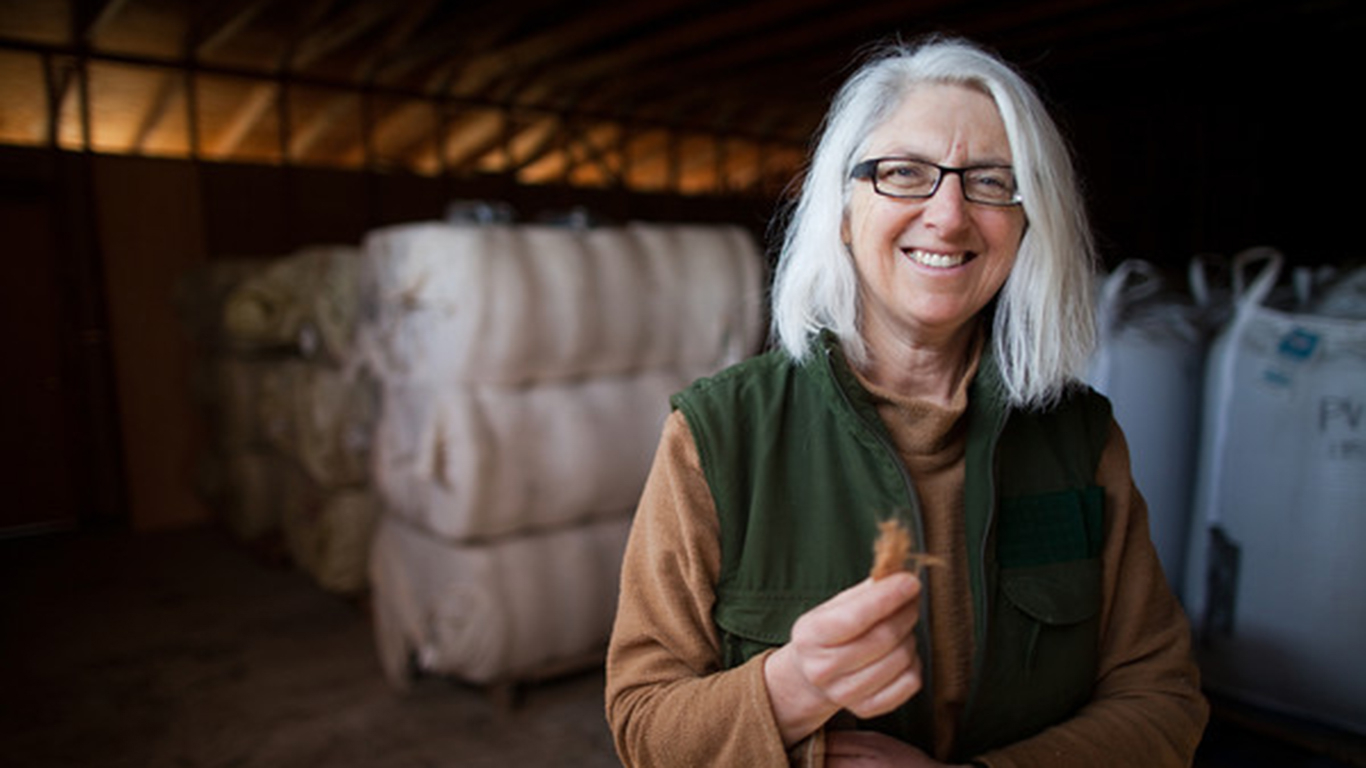
1. Sally Fox
> Year of birth: 1955
> Birthplace: Menlo Park, California
> Occupation: Inventor/businesswoman/entomologist
> Invention: Inventor of commercially viable fiber-colored cotton
California native Sally Fox developed her own version of long fiber colored cotton called “Fox Fibre.” Colored cotton had been grown for thousands of years but was not suitable for modern textile machines and had to be spun by hand. While working as a pollinator for a farmer seeking more pest-resistant cotton, Fox began breeding brown and green cotton. It took her eight years to develop plants that were uniform in color and size as well as commercially viable. Because it doesn’t need to be dyed, colored cotton needs minimal processing and is more environmentally friendly. According to the World Bank, textile dyeing and treatment causes as much as 20% of total industrial water pollution.
[in-text-ad]

2. Temple Grandin
> Year of birth: 1947
> Birthplace: Boston, Massachusetts
> Occupation: Inventor/teacher
> Invention: Animal-handling devices
Temple Grandin is famous for a number of reasons. She overcame autism to earn a doctorate in animal science and became a professor at Colorado State University. She is a prominent author and speaker and an advocate for autism and animal welfare. She is also an inventor and has designed animal restraint systems that rely on behavioral principles rather than the use of force. Grandin studied how cattle react to ranchers and various stimuli, and designed stockyards and chutes that reduce stress and injury. Today, almost half the cattle in North America are handled or slaughtered using equipment designed by her.
Grandin’s work with slaughterhouses has earned her enemies among animal rights activists, but her overriding concern is reducing unnecessary suffering in the livestock industry.
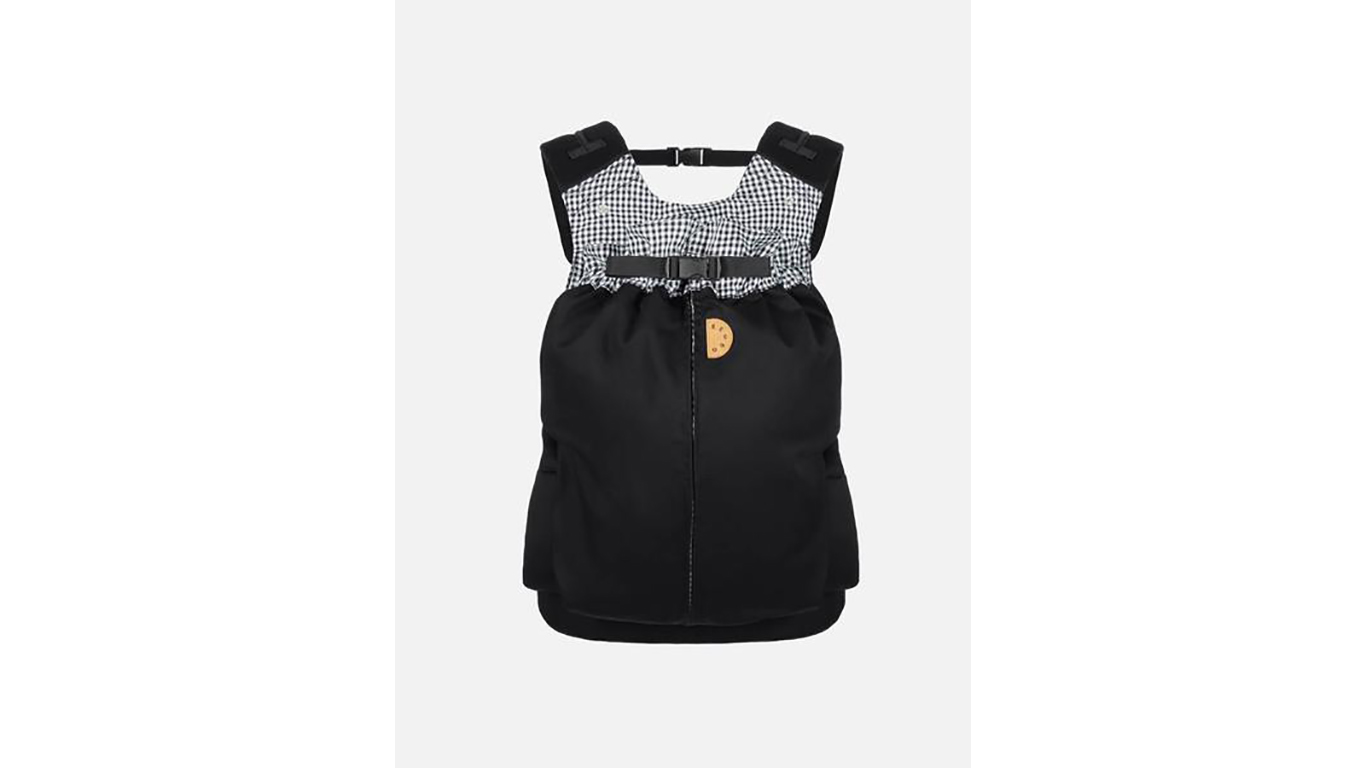
3. Ann Moore
> Year of birth: 1934
> Birthplace: Ohio
> Occupation: Inventor/nurse
> Invention: Snugli and Weego child carriers
Ann Moore invented the Snugli and Weego baby carriers after working as a pediatric nurse with the Peace Corps in Togo, where she saw mothers carrying their babies in fabric slings. Her creations allow parents to carry babies safely and securely while keeping their hands free to do different things. These baby carriers promote intimacy and bonding as well. Moore also invented the AirLift oxygen carrier, a soft mesh backpack that allows people on oxygen more mobility. Her achievements have been honored with a permanent display at the Smithsonian Institution.
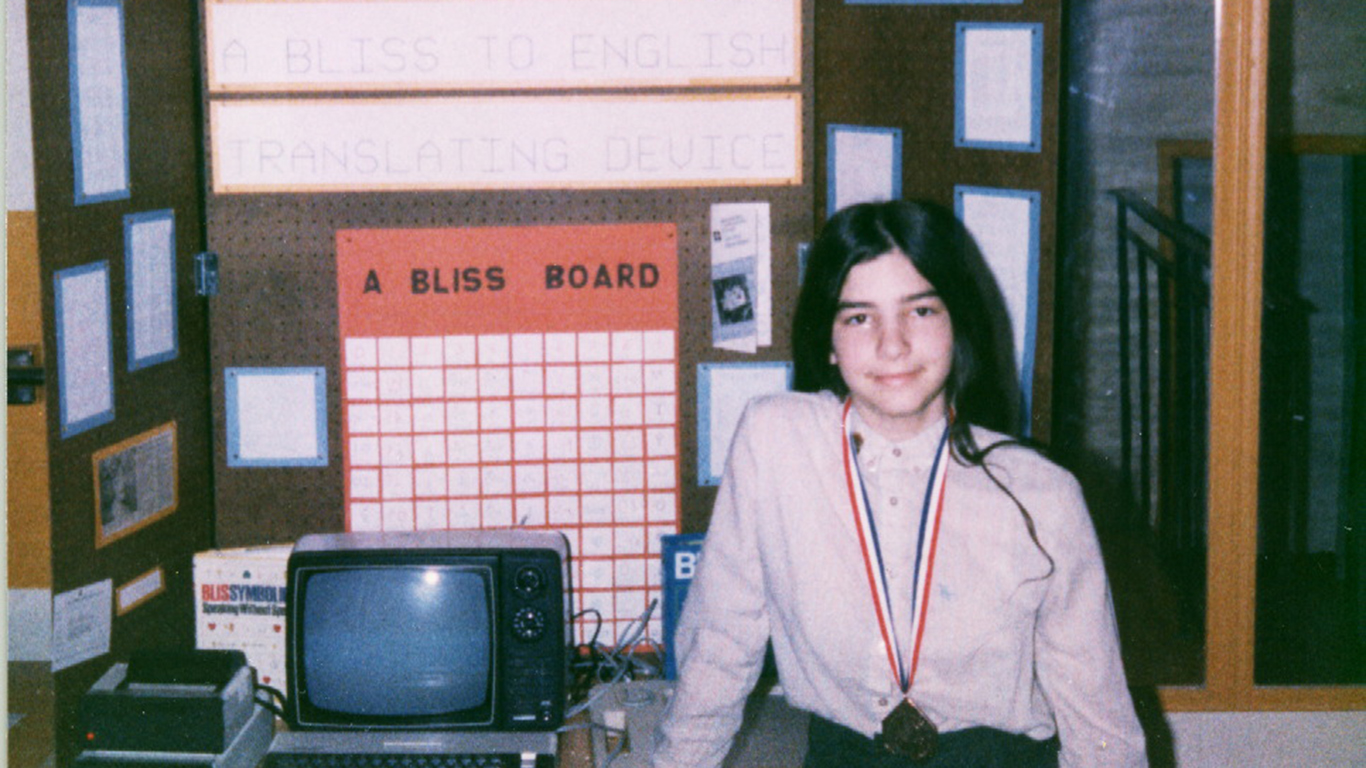
4. Rachel Zimmerman
> Year of birth: 1972
> Birthplace: Ontario, Canada
> Occupation: Inventor
> Invention: Blissymbol Printer
When she was only 12, Rachel Zimmerman invented the Blissymbol Printer as part of a project for a school science fair. The device enables disabled people to communicate using a computer. The software program translates Blissymbols — a picture language developed by Charles Bliss to help those with cerebral palsy communicate — into printed language on a computer screen. This allows physically challenged people to communicate with others. Zimmerman now works at NASA’s Jet Propulsion Laboratory in Pasadena, California. She worked on NASA’s Cassini mission to Saturn and runs essay contests for students about the planet.
[in-text-ad-2]
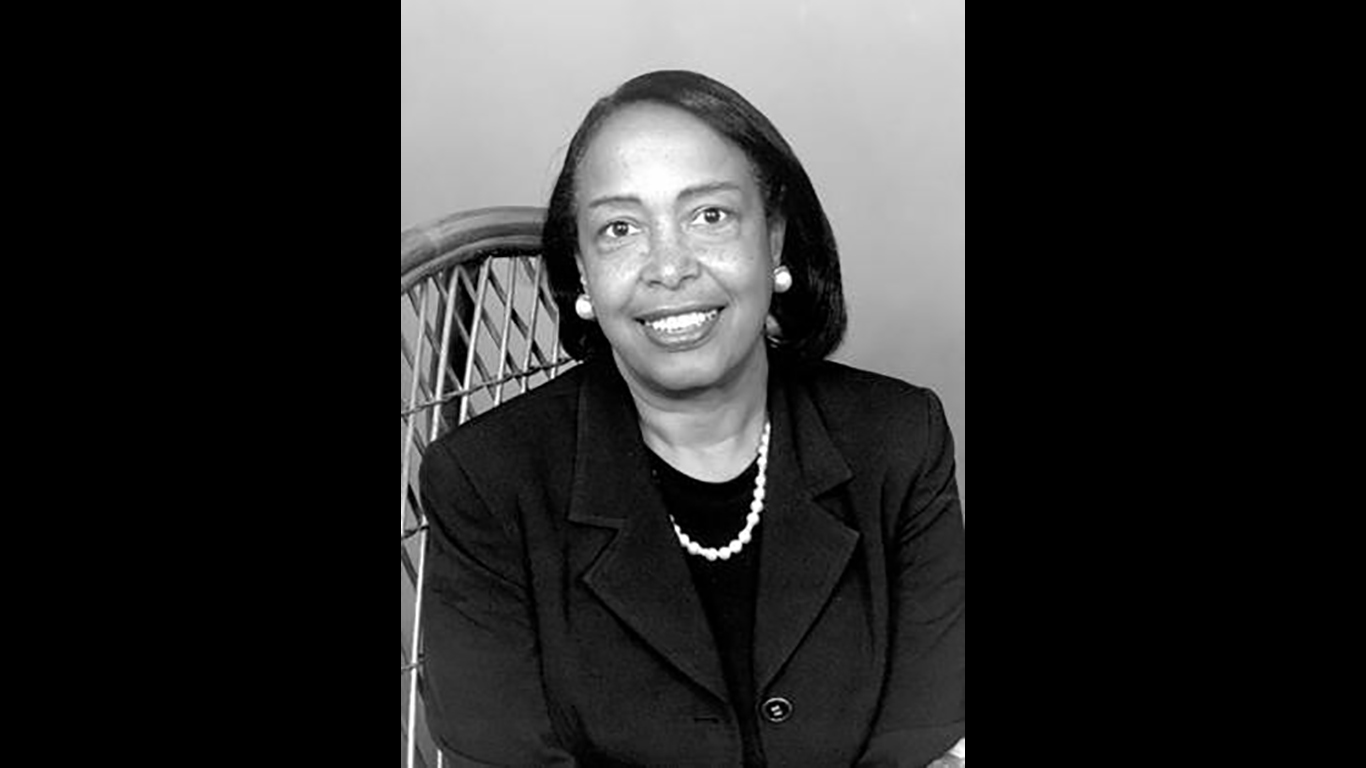
5. Patricia Bath
> Year of birth: 1942
> Birthplace: New York City, New York
> Occupation: Ophthalmologist/inventor
> Invention: Laser tool to treat cataracts
Patricia Bath is best known as the inventor of the Laserphaco Probe, a device that uses laser technology to treat cataracts. Bath is a pioneer in other regards as well. She was the first African American to complete a residency in ophthalmology, the first female faculty member in the Department of Ophthalmology at UCLA’s Jules Stein Eye Institute, and the first African American female doctor to receive a patent. She is an advocate for the use of telemedicine to bring medical services to remote areas. In 2007, the Daily Telegraph named her one of the top 100 living geniuses.

6. Joy Mangano
> Year of birth: 1956
> Birthplace: East Meadow, New York
> Occupation: Businesswoman
> Invention: Self-wringing Miracle Mop
Joy Mangano invented the self-wringing Miracle Mop and made it a best seller on shopping channel QVC in 1992. She went on to develop numerous consumer products and sold her business, Ingenious Designs, to the Home Shopping Network (HSN) in 1999. She holds more than 100 patents and trademarks and has been successful as a businesswoman and engrepreneur. The 2015 biopic “Joy,” which earned Jennifer Lawrence a nomination for the Academy Award for best actress, is based on Mangano’s life.
[in-text-ad]
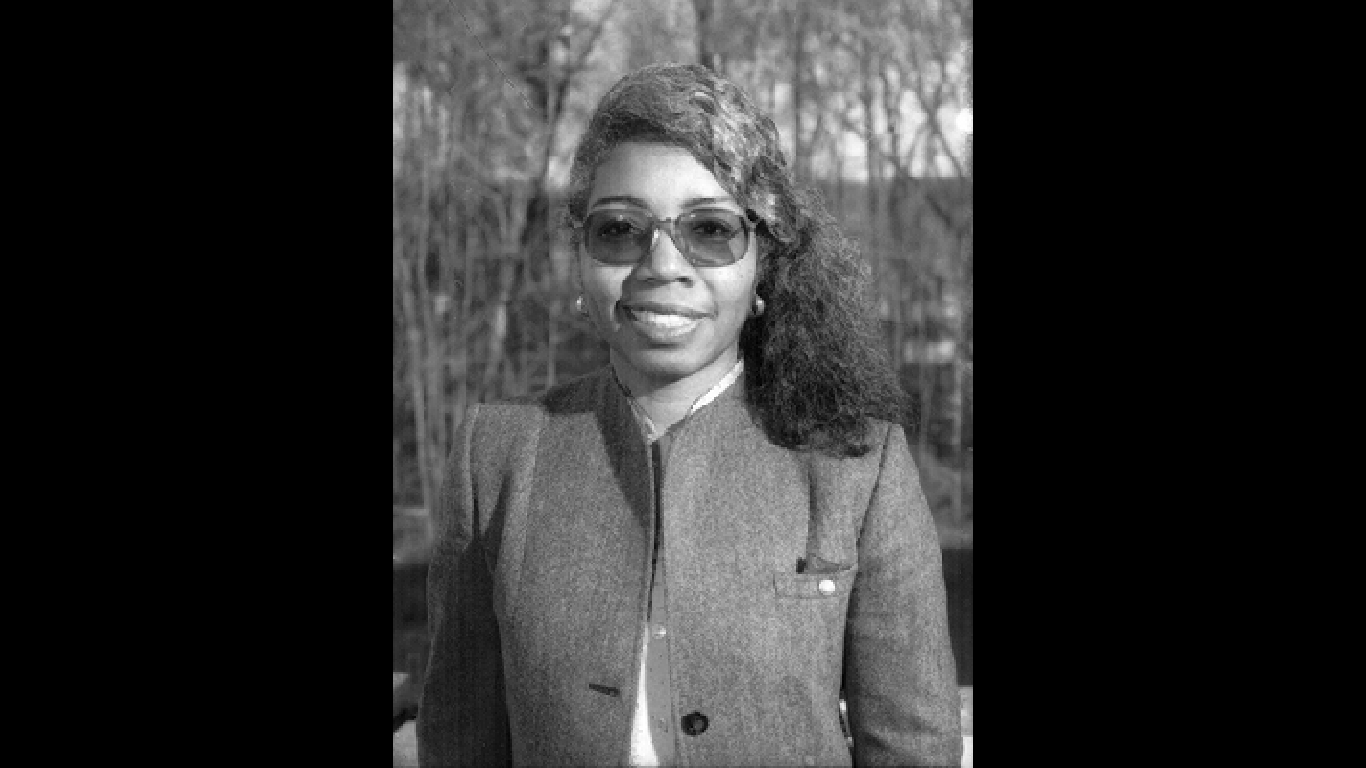
7. Valerie Thomas
> Year of birth: 1942
> Birthplace: Maryland
> Occupation: Scientist
> Invention: Illusion transmitter
Valerie Thomas invented the illusion transmitter, which uses concave mirrors to create optical illusion images. After majoring in physics at Morgan State University, Thomas began her career at NASA. When she worked on Landsat, the first satellite to transmit images from outer space, saw the need for a technology that would deliver three-dimensional images. The illusion transmitter was patented in 1980 and is still used by NASA today. Scientists are seeking to incorporate it into technology that will give surgeons three-dimensional views of the human body.
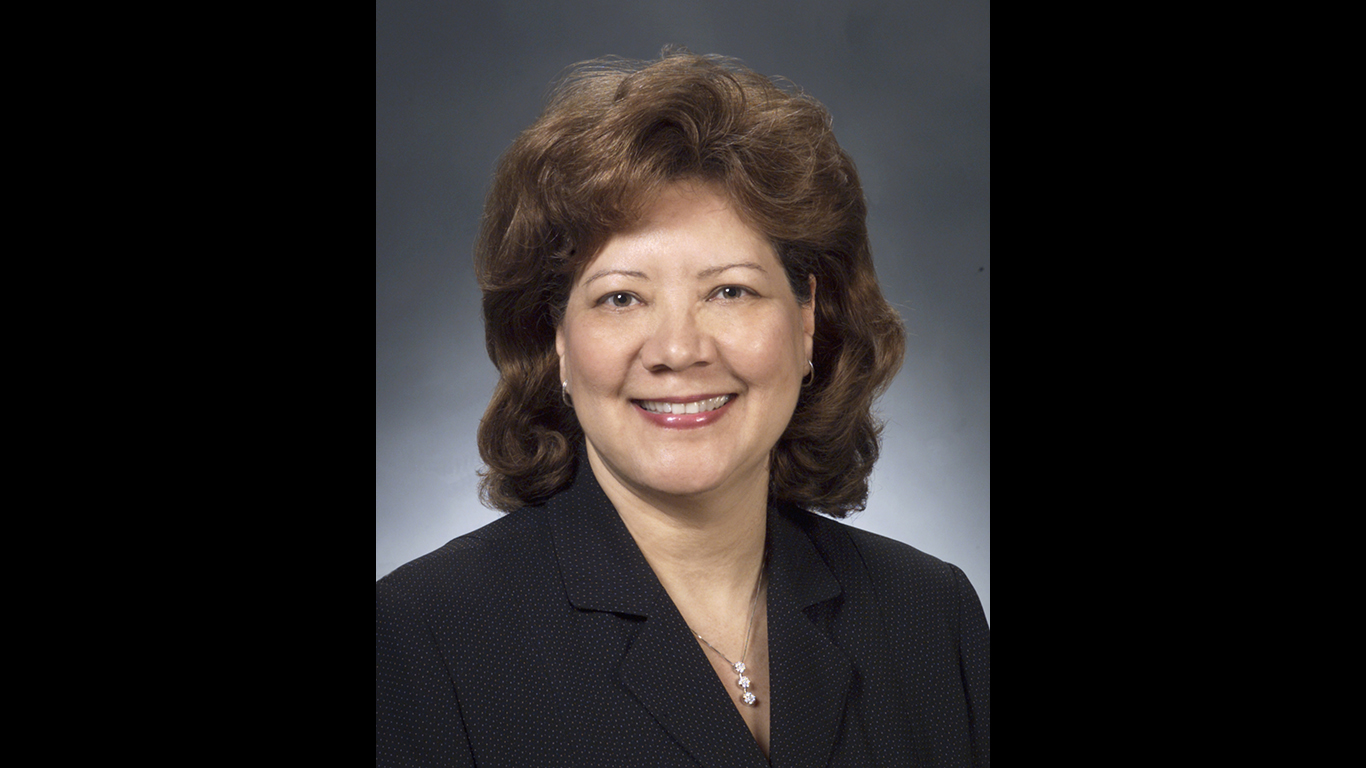
8. Olga D. González-Sanabria
> Year of birth: N/A
> Birthplace: Patillas, Puerto Rico
> Occupation: Scientist/inventor
> Invention: Long-life nickel hydrogen batteries
Olga González-Sanabria played a key role in the development of the long-life nickel hydrogen battery, used to power the International Space Station. A native of Puerto Rico, she joined NASA’s Glenn Research Center in Cleveland in 1979 and has held a number of senior positions there. González-Sanabria is currently director of engineering, overseeing a team of more than 400 engineers and other personnel. González-Sanabria has received numerous honors, including the Presidential Rank Award and the YWCA Women of Achievement Award. She also has been inducted into the Ohio Women’s Hall of Fame.
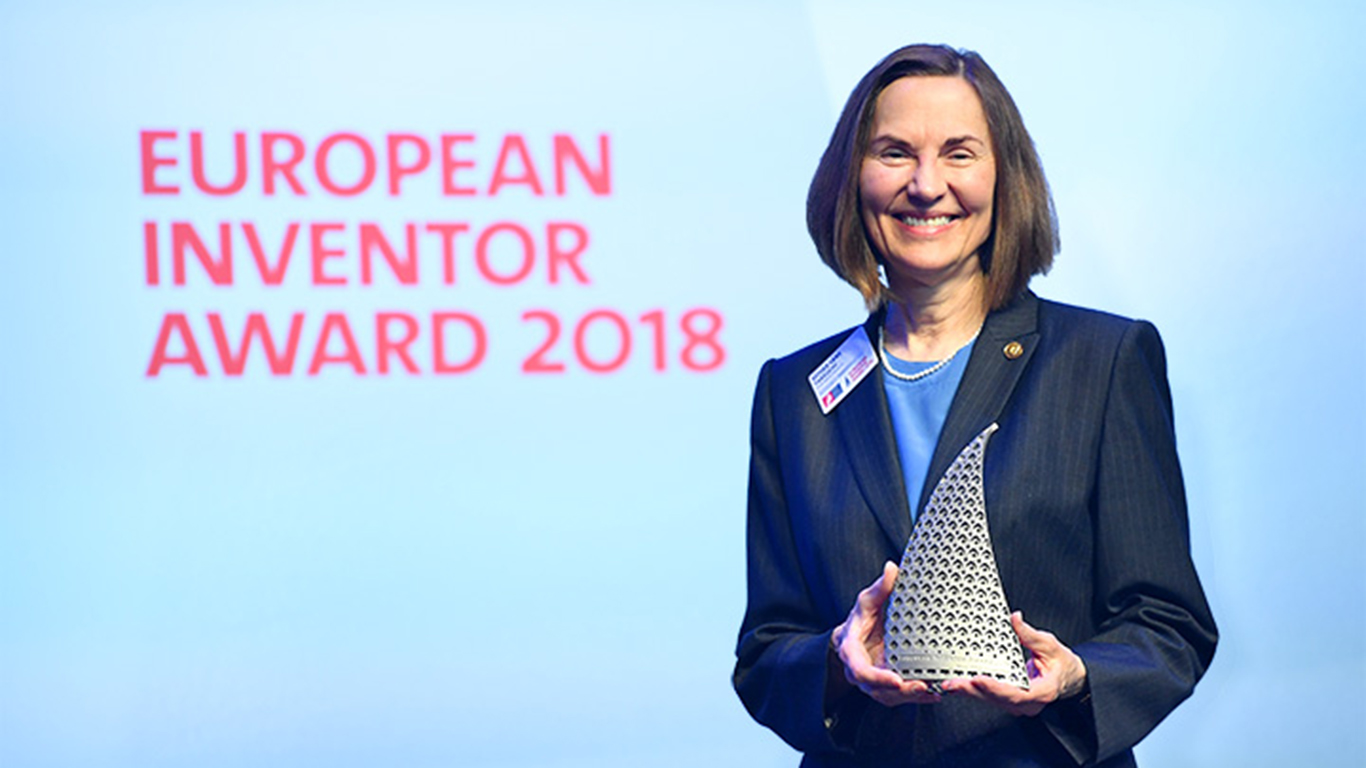
9. Esther Sans Takeuchi
> Year of birth: 1953
> Birthplace: Kansas City, Missouri
> Occupation: Chemical engineer
> Invention: Developed Li/SVO batteries
In 1987, materials scientist and chemical engineer Esther Sans Takeuchi developed lithium/silver vanadium oxide (Li/SVO) batteries for implantable cardiac defibrillators (ICDs). These were much smaller than the previously used batteries and lasted up to five times as long, making ICDs easier to implant and reducing the need for replacement surgery. In recognition of her achievement, Takeuchi was the only American to be honored with this year’s European Inventor Award. Takeuchi, a distinguished professor in the chemistry department at Stony Brook University and a chief scientist at Brookhaven National Laboratory, holds almost 150 patents.
[in-text-ad-2]
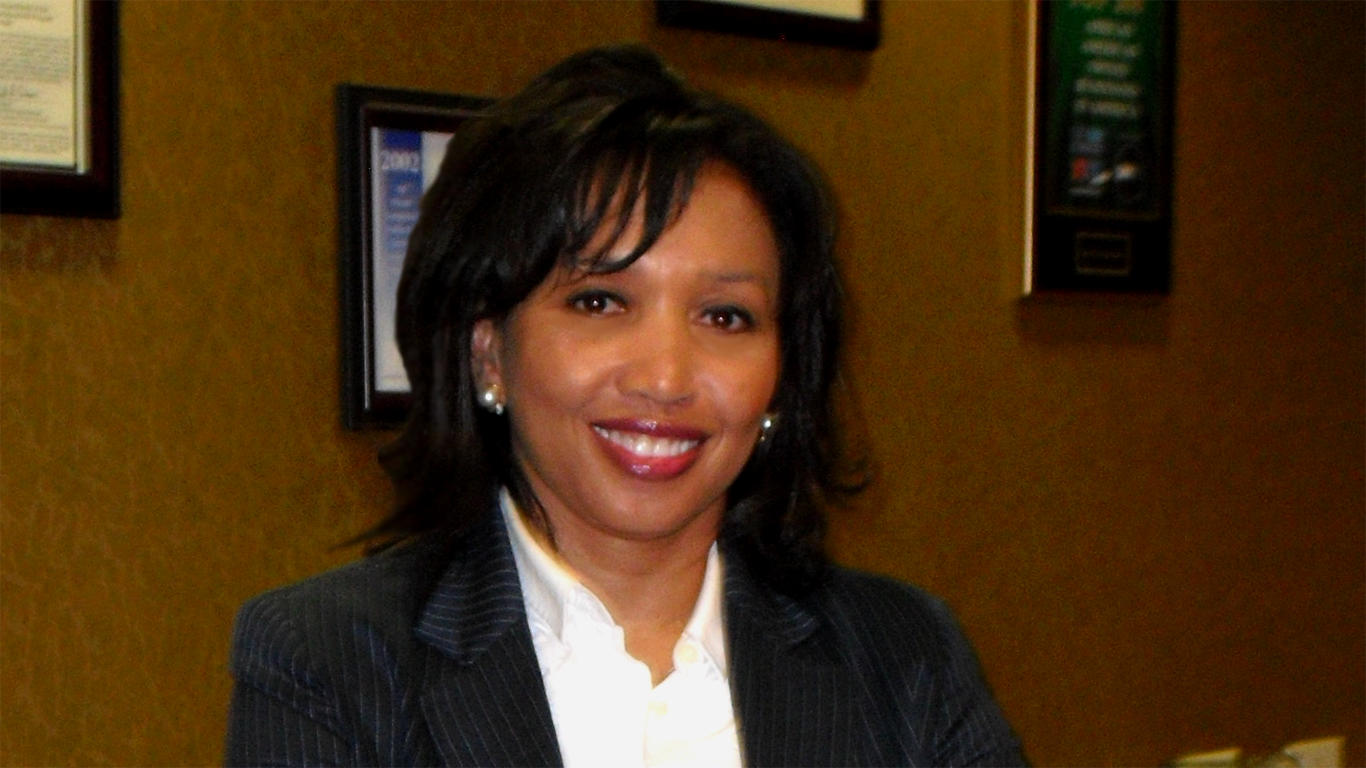
10. Janet Emerson Bashen
> Year of birth: 1957
> Birthplace: Mansfield, Ohio
> Occupation: Businesswoman
> Invention: Software to secure documents
Janet Emerson Bashen, founder, chief executive officer, and president of human resources company Bashen Corp., became the first African American woman in the U.S. to receive a software patent in 2006. She and a cousin developed LinkLine, a web-based application that stores and retrieves information pertaining to Equal Employment Opportunity cases. Bashen is a member of the Black Inventors Hall of Fame,and a recipient of the Robert R. Taylor Network at MIT for the LinkLine product.
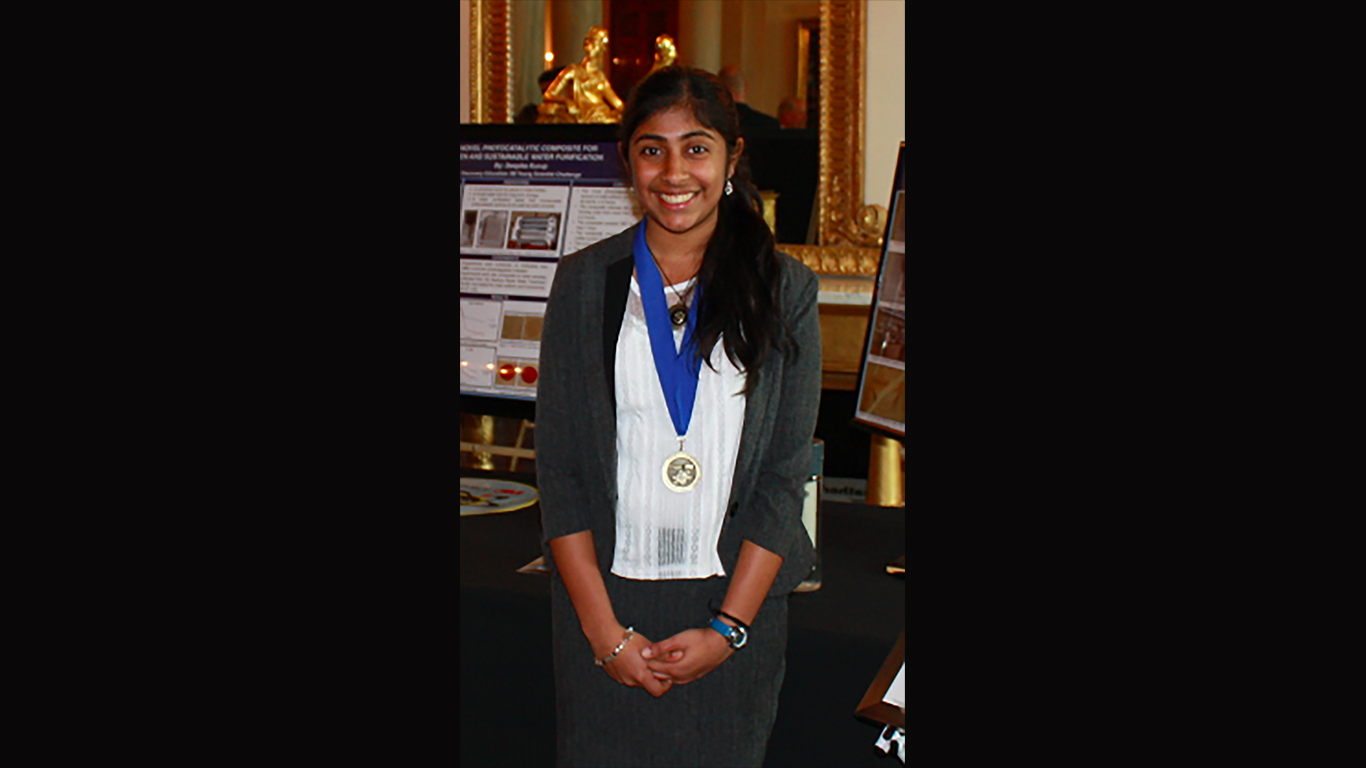
11. Deepika Kurup
> Year of birth: 1998
> Birthplace: Nashua, New Hampshire
> Occupation: Inventor/scientist/social entrepreneur
> Invention: Water purification system
Deepika Kurup is the youngest entrant on our list — she is currently a student at Harvard University. While still a teenager, after seeing children drinking dirty water in India, she invented a purification system that uses solar energy to remove contaminants from water. She also founded Catalyst for World Water to further this work. Kurup won numerous awards, including the Discovery Education 3M Young Scientist Challenge in 2012, the President’s Environmental Youth Award in 2014, and the National Geographic Explorer Award at the 2015 Google Science Fair.
[in-text-ad]

12. Jeanne Lee Crews
> Year of birth: 1939
> Birthplace: United States
> Occupation: Inventor/scientist
> Invention: Bumper to shield satellites from space debris
Jeanne Crews joined NASA in 1964 — one of the first women engineers to do so — and began working on the problem of protecting satellites and manned craft from space debris. She developed the “space bumper,” a multi-layered shield that is as light but stronger than aluminum and is still in use on the International Space Station. Crews holds a number of patents for hypervelocity impact shields. Today, Crews is working on developing an extra-terrestrial garbage collector intended to eradicate man-made debris orbiting our planet.
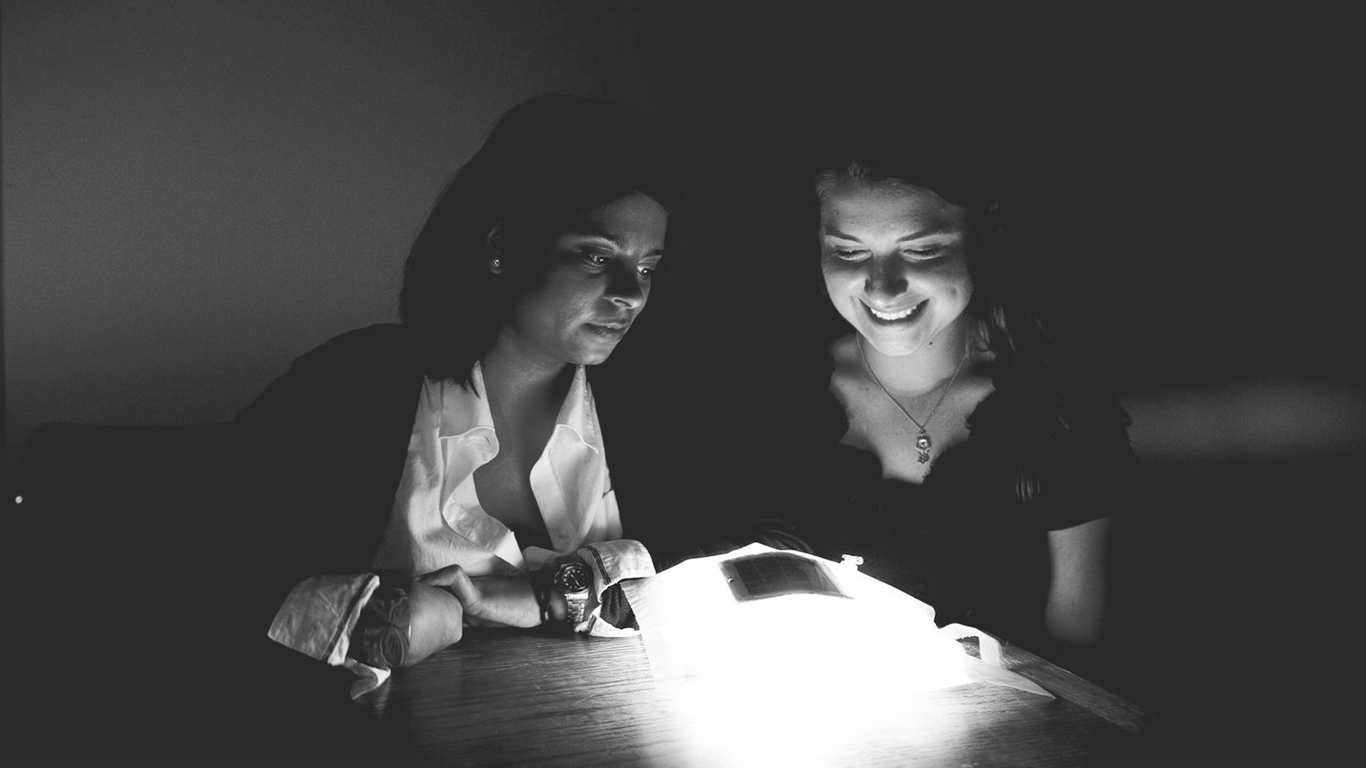
13. Anna Stork and Andrea Sreshta
> Year of birth: Stork: 1987; Sreshta: N/A
> Birthplace: Stork: Chicago, Illinois; Sreshta: Houston, Texas
> Occupation: Inventor/entrepreneur Inventors/entrepreneurs
> Invention: Solar-powered inflatable light
Anna Stork and Andrea Sreshta were graduate students at Columbia University when they invented the LuminAID, an inflatable, waterproof, solar-powered light as part of a disaster relief project after the 2010 Haiti earthquake. Their product provides light for 16 hours and requires six hours of daylight to charge. Stork and Sreshta used a crowdfunding campaign to begin making the LuminAID and started a Give Light Project to donate a light for every one purchased. LuminAID won the Social New Venture Challenge at the University of Chicago Polsky Center for Entrepreneurship and Innovation in 2012. Stork and Sreshta subsequently participated in ABC’s reality investment show “Shark Tank” and received funding from entrepreneur Mark Cuban.
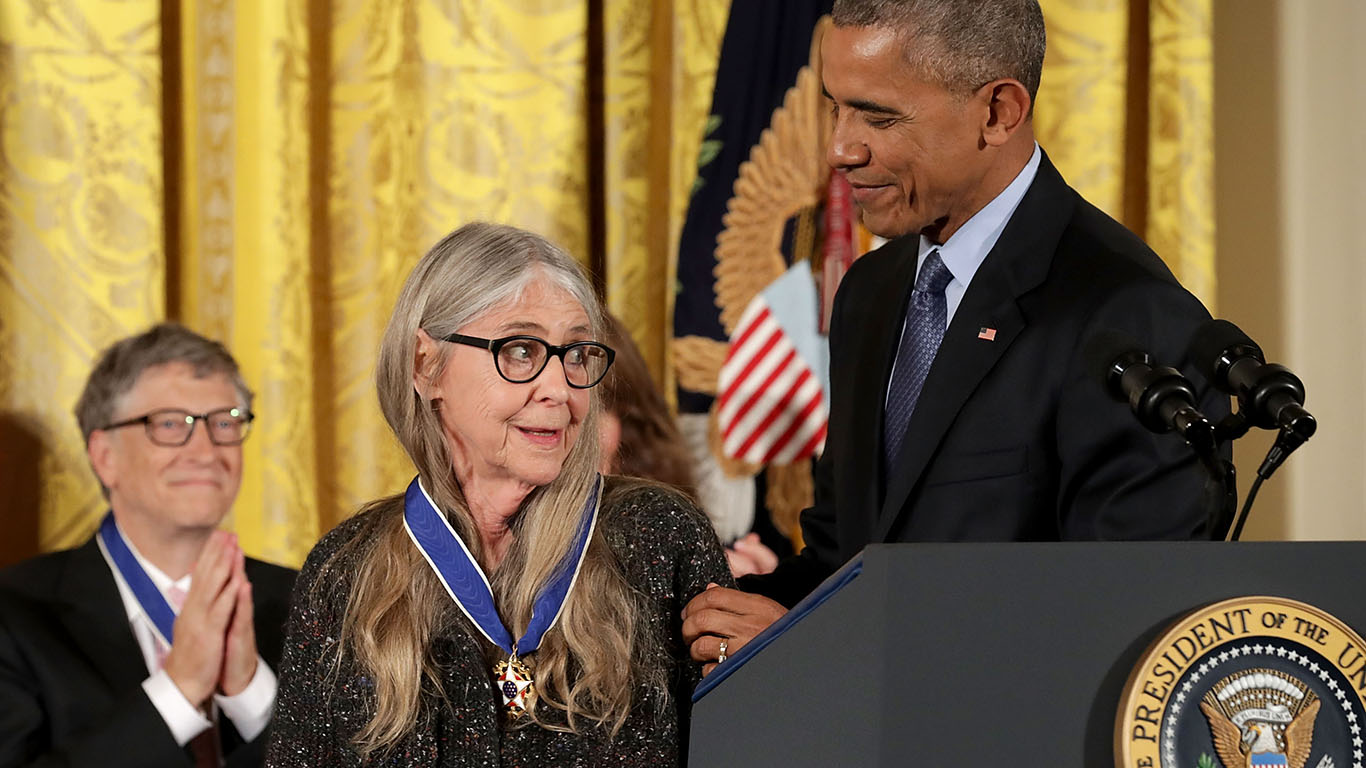
14. Margaret Hamilton
> Year of birth: 1936
> Birthplace: Paoli, Indiana
> Occupation: Computer scientist
> Invention: Software development
Margaret Hamilton led the Software Engineering Division at the MIT Instrumentation Laboratory that developed guidance and navigation software for the Apollo space program. The software was critical to the success of the Apollo missions and was adapted for use in Skylab, the Space Shuttle and the first digital fly-by-wire systems in aircraft. Hamilton is more than a pioneer in computer programming, she also coined the very term “software engineering.” As an entrepreneur, Hamilton has founded a number of companies, including Hamilton Technologies. In 2016, Hamilton was awarded the Presidential Medal of Freedom by President Barack Obama.
[in-text-ad-2]
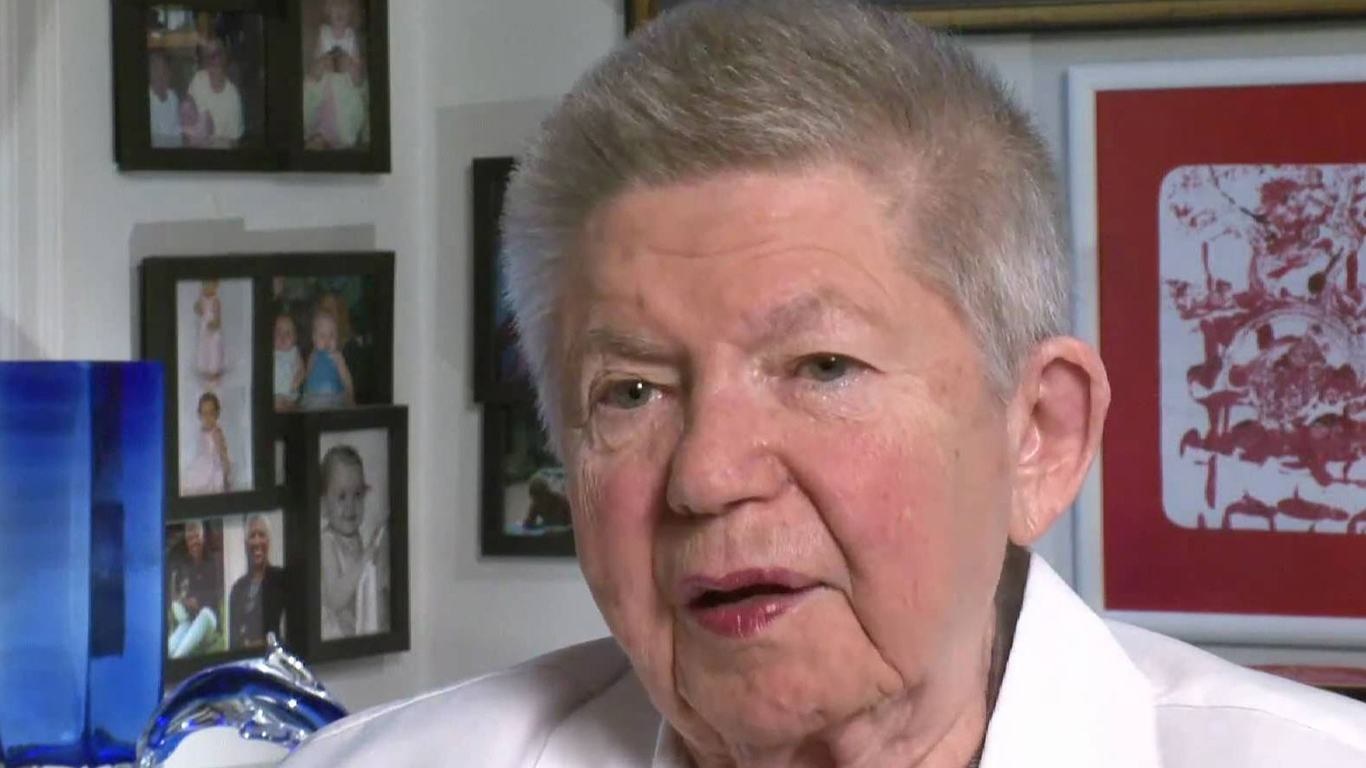
15. Patricia Billings
> Year of birth: 1926
> Birthplace: Clinton City, Missouri
> Occupation: Sculptor/inventor/businesswoman
> Invention: Geobond-replacement for asbestos
Sculptor Patricia Billings invented Geobond to prevent her works from shattering. She knew that sculptors during the Renaissance used a cement additive to make their plaster more durable and wanted to create a modern version. After years of experimentation, Billings developed Geobond, which creates an indestructible plaster when mixed with gypsum and concrete. What’s more, it is fireproof and non-toxic and thus a practical alternative to asbestos.
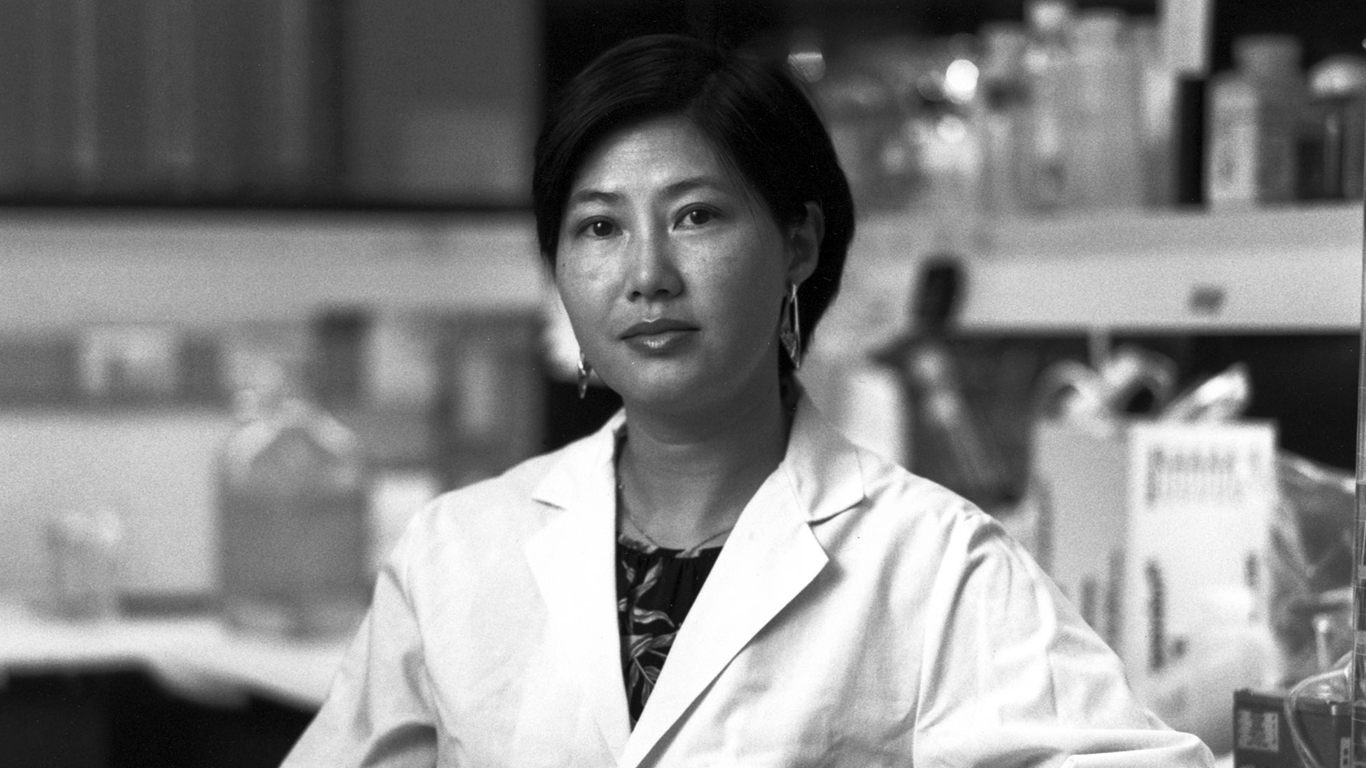
16. Flossie Wong-Staal
> Year of birth: 1947
> Birthplace: China
> Occupation: Molecular biologist
> Invention: Helped genetic mapping of HIV virus
Molecular biologist Flossie Wong-Staal was born in China and came to the United States by way of Hong Kong. After attending the University of California in Los Angeles, she began working at the National Cancer Institute. In 1983, Wong-Staal and her colleagues, simultaneously with French researchers, discovered the human immunodeficiency virus (HIV), which causes AIDS. Wong-Staal was the first person to clone HIV. This led to a genetic map of the virus and ultimately to a blood test for it. She later co-founded itherX Pharmaceuticals Inc. and serves as chief scientific officer and executive vice president of research and development. The Institute for Scientific Information named Wong-Staal the top woman scientist of the 1980s. In 2007, the Daily Telegraph named her one of the top 100 living geniuses.
[in-text-ad]
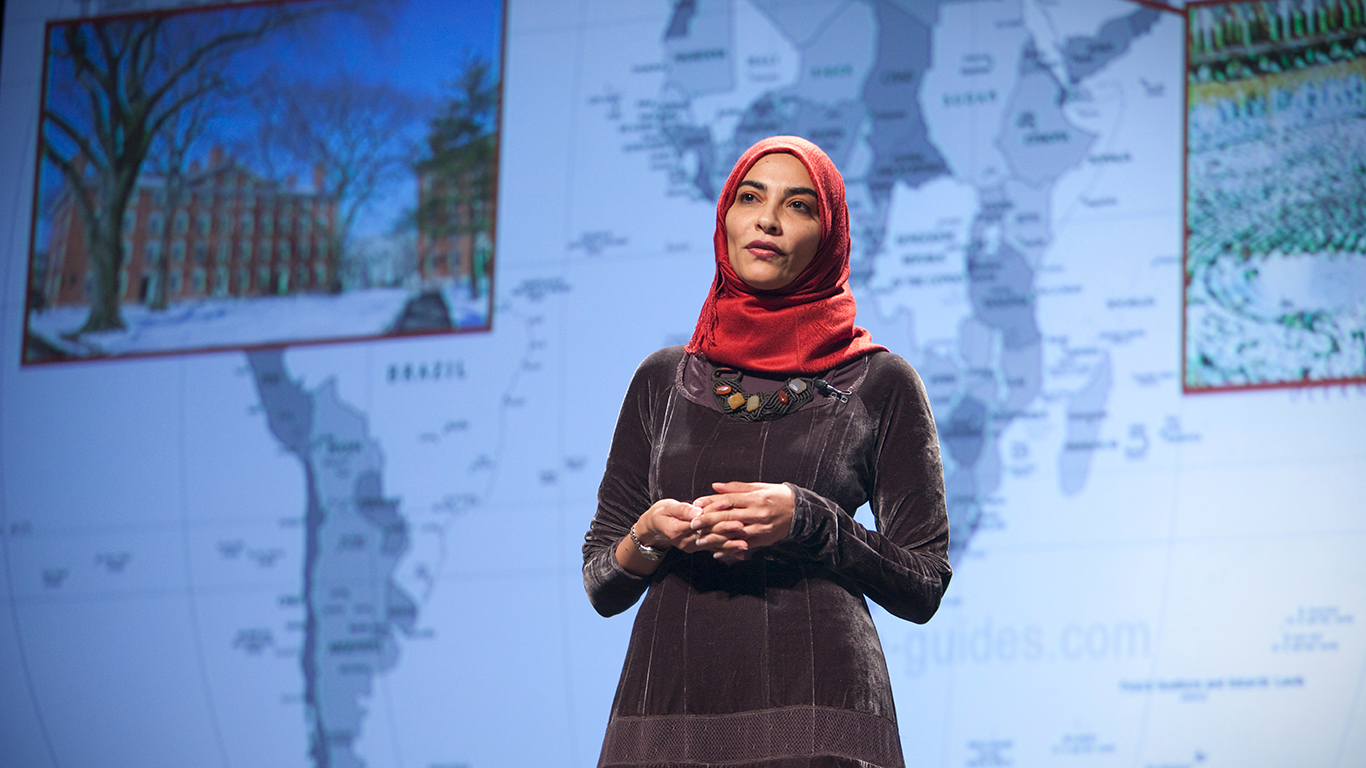
17. Hayat Sindi
> Year of birth: 1967
> Birthplace: Mecca, Saudi Arabia
> Occupation: Biochemist
> Invention: Penny-size paper detects disease by analyzing bodily fluids
Hayat Sindi was born in Saudi Arabia, a country where women until last year could not even drive and where they have limited choices in education and career. But Sindi persuaded her family to let her go to school in the United Kingdom. She studied pharmacology at King’s College London and biotechnology at the University of Cambridge. She holds patents for a simple, low-tech diagnostic tool that could significantly change medical treatment in poor countries. The small, paper-like device detects disease by analyzing bodily fluids such as saliva, urine, or blood.Sindi also founded Diagnostics for All, a nonprofit that focuses on providing low-cost diagnostic tests for people in developing countries.
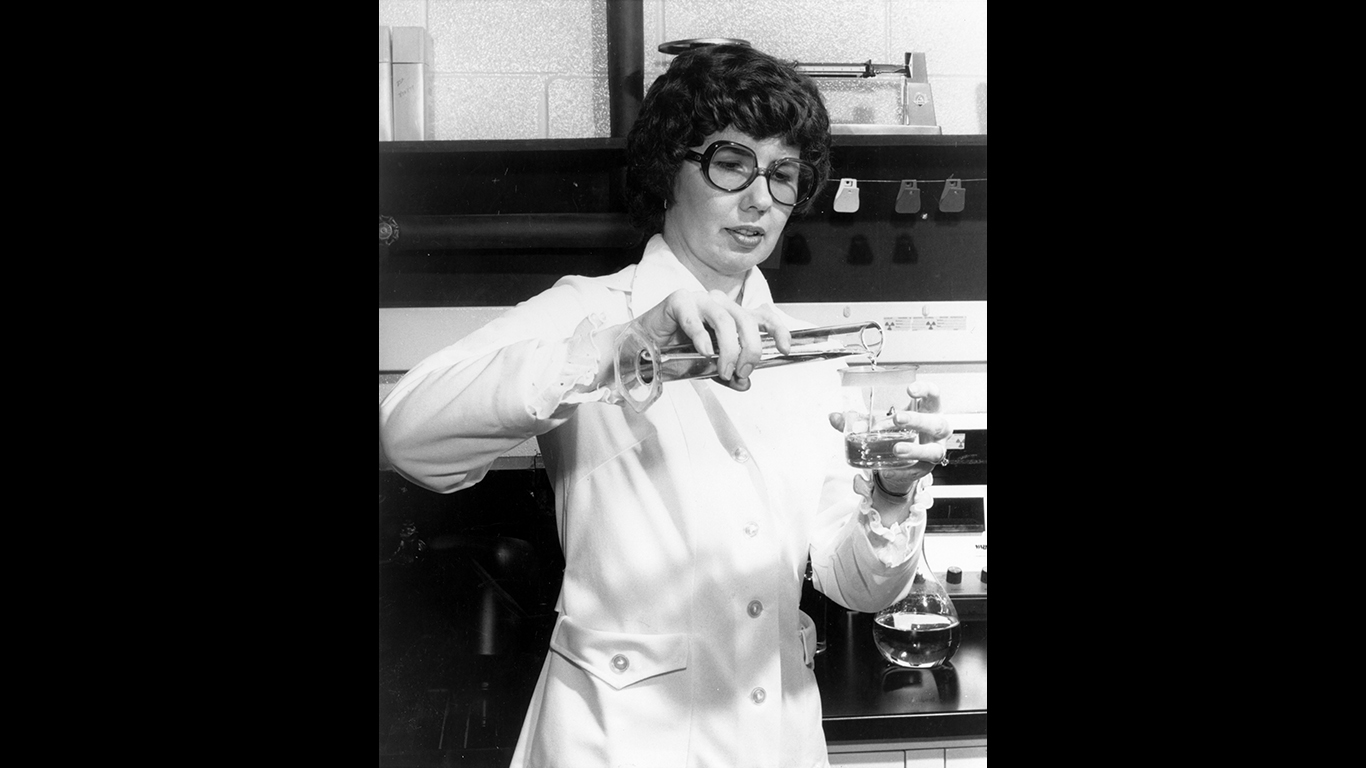
18. Barbara S. Askins
> Year of birth: 1939
> Birthplace: Belfast, Tennessee
> Occupation: Chemist
> Invention: Used radioactive material to enhance images from space
Barbara Askins is yet another NASA scientist on our list. She is best known for inventing in the 1970s a method to enhance photographs taken from space. Prior to Askins’ inventions, these photographs were often blurred or lacked definition. By exposing negatives to radiation Askins was able to produce images with greater density and contrast. Her invention had applications outside space exploration. It was used to improve the clarity of X-rays — which meant getting readable X-rays while exposing patients to less radiation — and to restore old photographs. Askins was named National Inventor of the Year in 1978.

19. Ann Tsukamoto
> Year of birth: 1952
> Birthplace: California
> Occupation: Scientist
> Invention: Invented process to isolate human stem cells
Ann Tsukamoto played a key role in the development of a method to isolate human stem cells. Stem cells are unspecialized cells capable of renewing themselves through division. Under certain conditions, they can be induced to become tissue- or organ-specific cells with special functions, thus serving as an internal repair system. Tsukamoto’s work has led to great advances in stem cell research and could further advance cancer and other diseases research.
[in-text-ad-2]
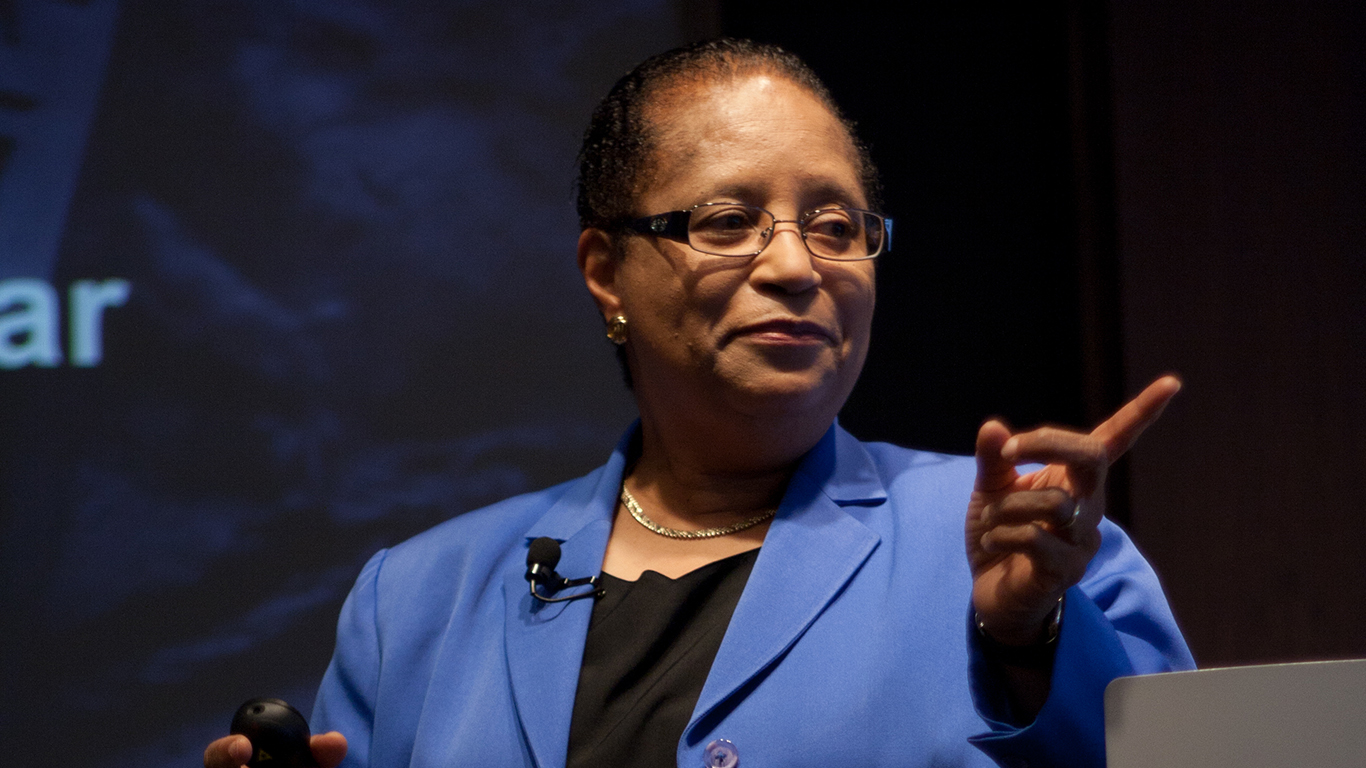
20. Shirley Ann Jackson
> Year of birth: 1946
> Birthplace: Washington, D.C.
> Occupation: Physicist
> Invention: Research led to invention of various communications devices
While Shirley Ann Jackson may not be a prolific inventor, she has definitely earned a place on our list for her contributions in several fields and for her status as a pioneer and leader in academia. Jackson is the first African American woman to earn a doctorate at MIT, which was followed by no less than 53 honorary degrees, and the first to lead a top-ranked research university — she is President of Rensselaer Polytechnic Institute. Her research career included work in theoretical physics, solid state and quantum physics, and optical physics, for which she was awarded the National Medal of Science. She also has held high-level positions in government — she was Chairman of the Nuclear Regulatory Commission, sat on the President’s Council of Advisors on Science and Technology, and was Co-Chair of the President’s Intelligence Advisory Board.
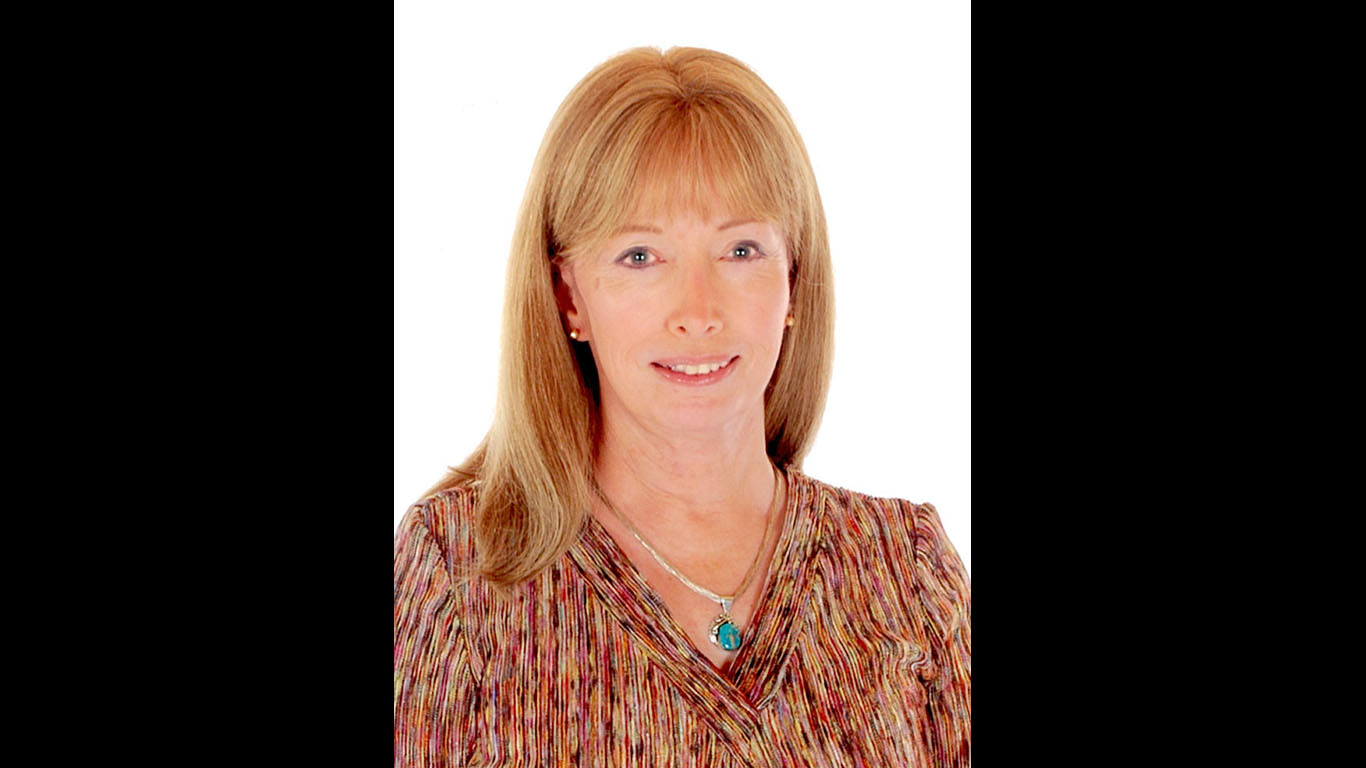
21. Lynn Conway
> Year of birth: 1938
> Birthplace: Mount Vernon, New York
> Occupation: Computer scientist
> Invention: Pioneer of microelectronics chip design
Lynn Conway is more than an inventor — she’s a revolutionary. Along with Carver Mead, Conway is credited with the Mead & Conway revolution, a design process for the integrated circuits that make microchips. She also invented generalized dynamic instruction handling, which is used to improve computer processor performance. Conway has received numerous awards, medals, and honorary doctorates for her contributions to computer sciences. She is also a prominent transgender activist.
[in-text-ad]
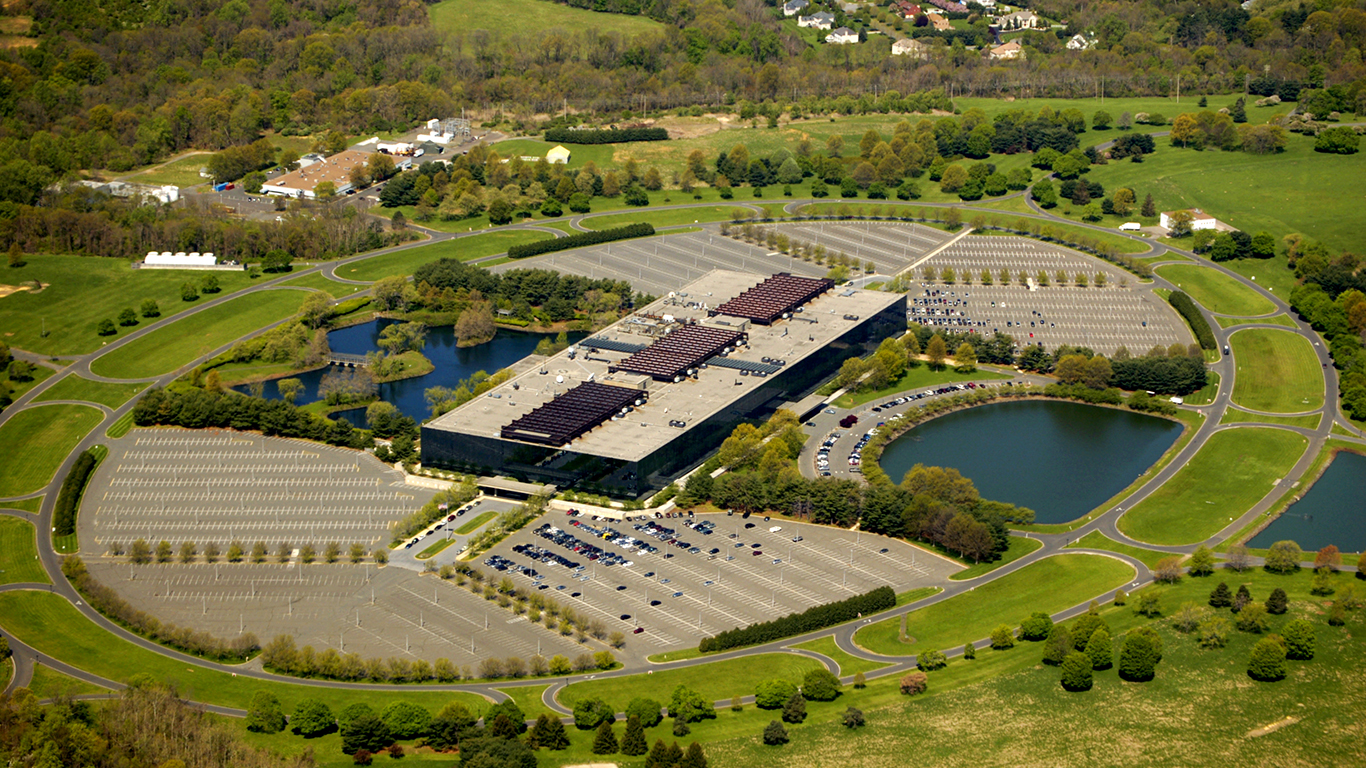
22. Erna Schneider Hoover
> Year of birth: 1926
> Birthplace: Irvington, New Jersey
> Occupation: Mathematician
> Invention: Invented computerized telephone switching method
While working at Bell Labs in New Jersey, mathematician Erna Hoover invented a way to monitor the frequency of incoming calls and prioritize tasks so as to avoid overloading phone switches. In 1971, she received a patent for a Feedback Control Monitor for Stored Program Data Processing System — one of the first software patents ever issued — and the principles of her invention are still applied in telecommunications equipment today. Hoover also worked on radar control programs for the interception of intercontinental ballistic missile warheads. In 2008, she was inducted into the National Inventors Hall of Fame.
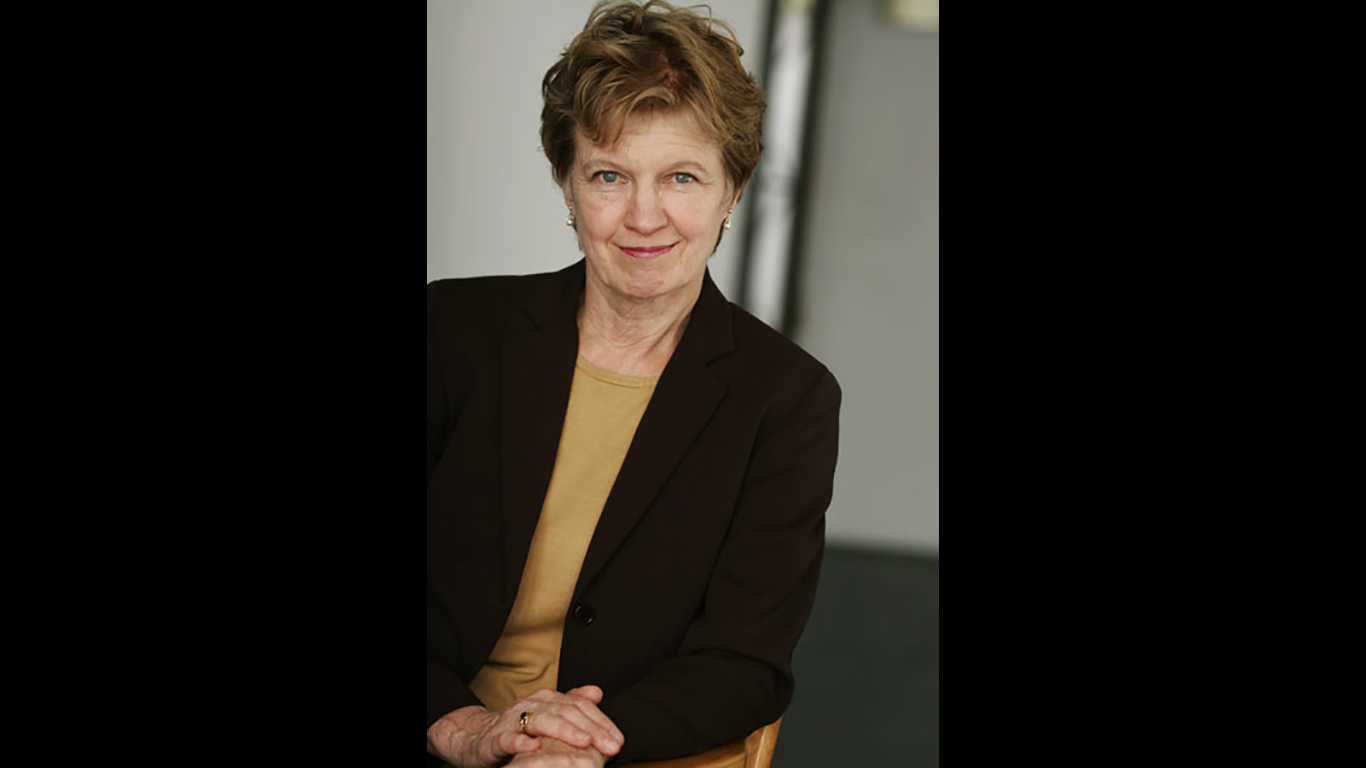
23. Ann A. Kiessling
> Year of birth: 1942
> Birthplace: Baker City, Oregon
> Occupation: Reproductive biologist
> Invention: Groundbreaking work in stem research, in vitro fertilization
Ann Kiessling discovered reverse transcriptase — converting RNA to DNA — in normal human cells in 1979. Prior to this, it was assumed that reverse transcriptase was an enzyme found only in retroviruses such as HIV. Her research into eggs and embryos led to advances in Human In Vitro Fertilization (IVF). In 1985, Kiessling was recruited by Harvard Medical School, and in 2000 she moved into stem cell research. Kiessling currently works at the Bedford Stem Cell Research Foundation, where she focuses on the development of parthenote stem cells, which are derived from unfertilized human eggs, and neurospheres, which are neural stem cells.
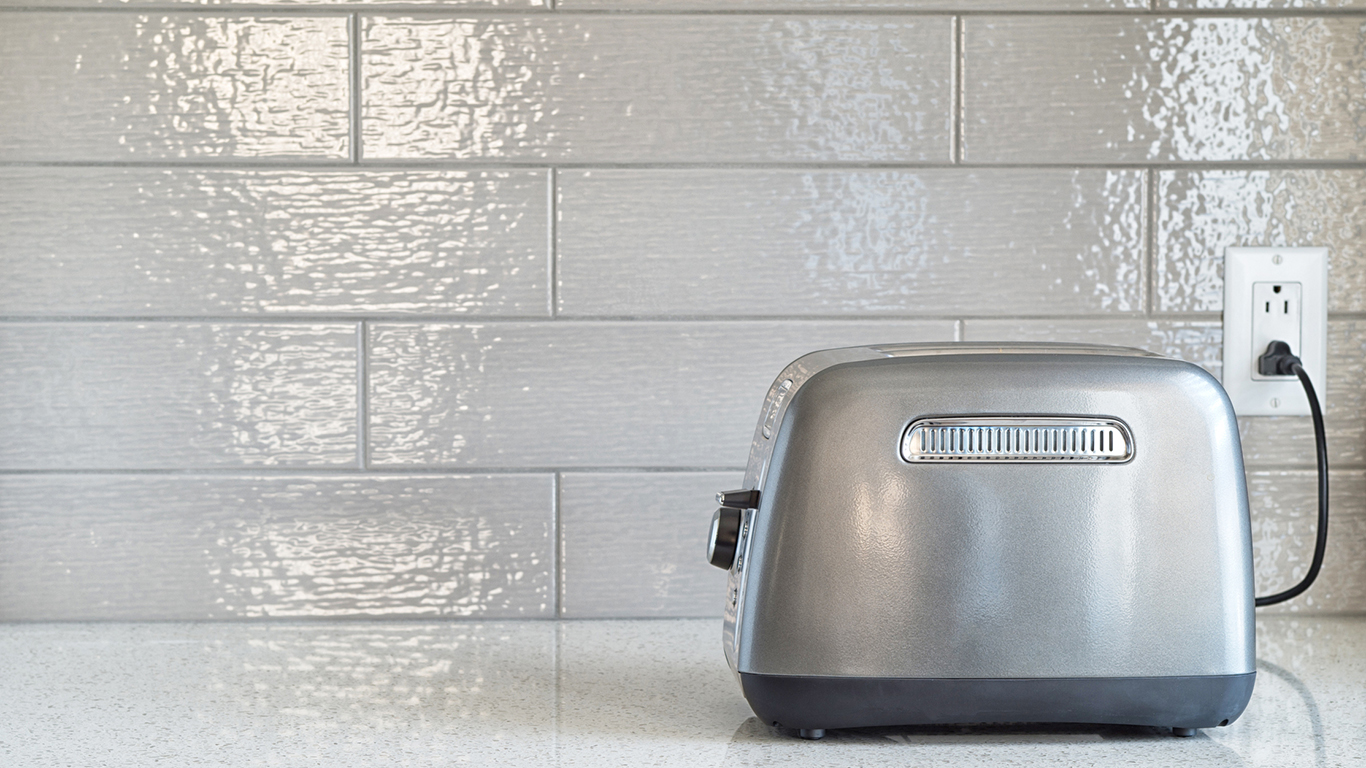
24. Ruane Sharon Jeter
> Year of birth: 1959
> Birthplace: Los Angeles, California
> Occupation: Inventor
> Invention: Invented toaster with a digital timer
Ruane Jeter invented a toaster with a digital timer that allows users to choose how well they want their bread toasted. She also collaborated with her sister Sheila to develop a multi-functional machine that included a stapler, staple remover, pencil sharpener, and other features. Jeter is nothing if not versatile — she also has several patents for medical devices, including a disposable scalpel, a drug cartridge, and a self-injection device.
[in-text-ad-2]
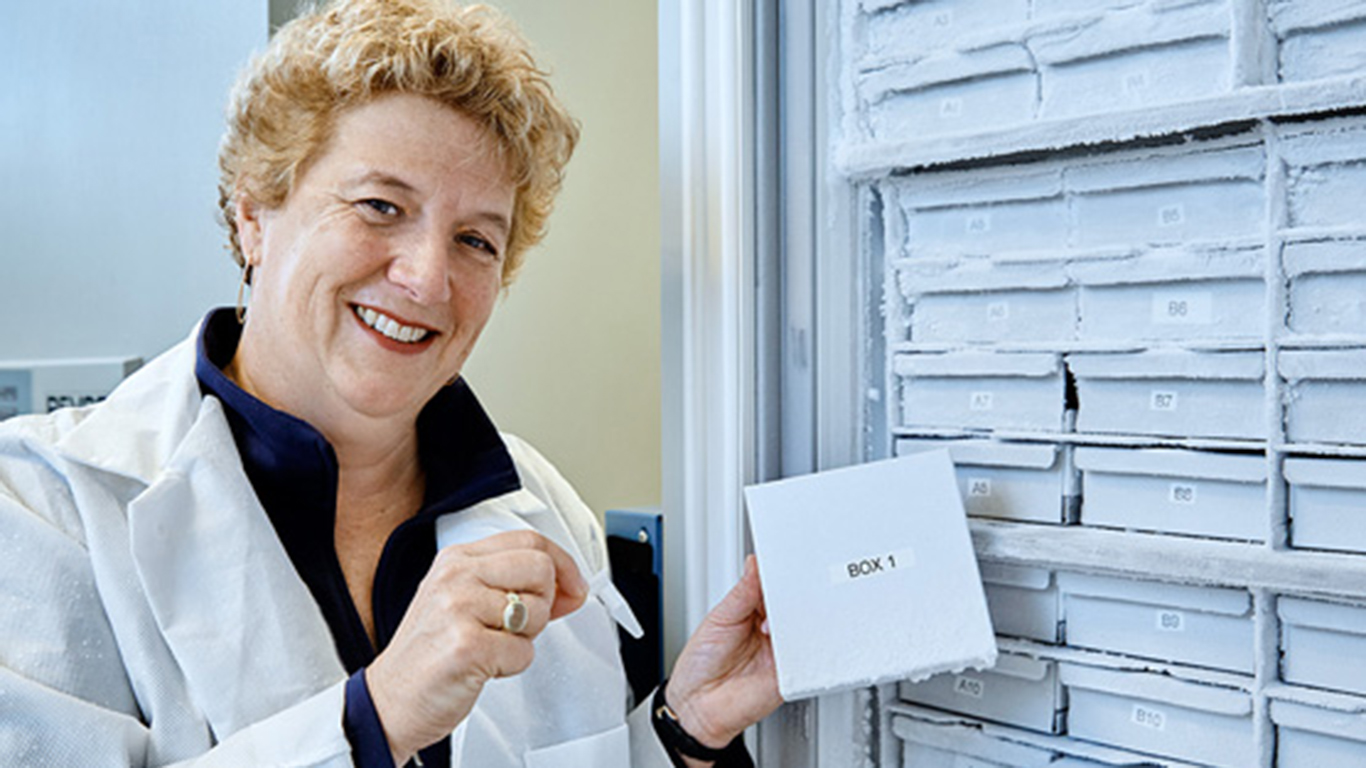
25. Laura van ‘t Veer
> Year of birth: 1957
> Birthplace: The Netherlands
> Occupation: Molecular biologist
> Invention: Gene-based tissue test for breast cancer
Laura van ‘t Veer invented a gene-based tissue test that enables targeted treatment of breast cancer. By providing a more reliable prognosis, patients and doctors are better able to decide whether chemotherapy is necessary. She also co-founded Agendia Inc., a molecular diagnostics and personalized medicine company, and heads a breast oncology program at the University of California, San Francisco. Van ‘t Veer won a European Inventor Award in 2015 and a European Cancer Organization Clinical Research Award in 2017.
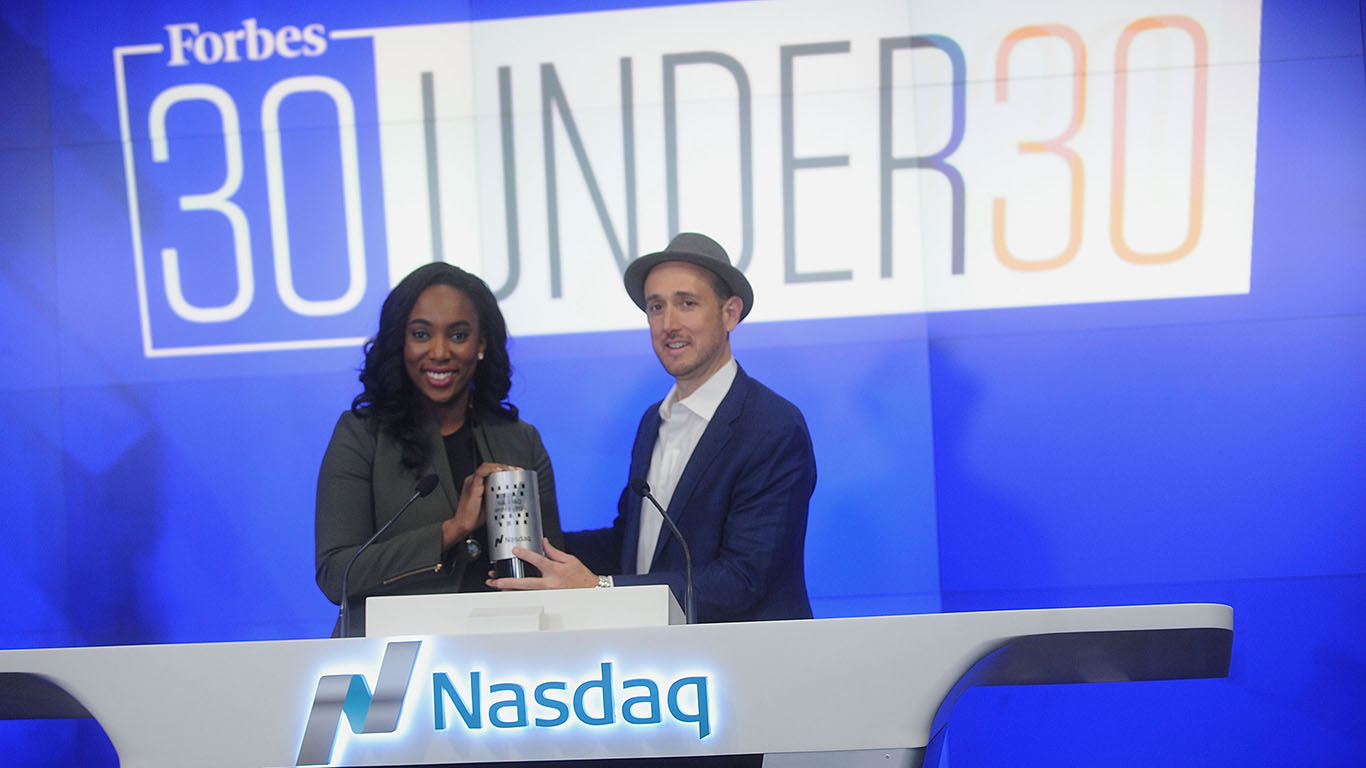
26. Jessica Matthews
> Year of birth: 1988
> Birthplace: Poughkeepsie, New York
> Occupation: Inventor
> Invention: Invented soccer ball that generates electricity for an attachable reading lamp.
While studying at Harvard University, Nigerian-American Jessica Matthews invented the Soccket, a soccer ball that generates electricity for an attachable reading lamp. She went on to found Uncharted Power, which specializes in harnessing kinetic energy to power microgrids for communities around the world. Matthews was invited to the White House by President Obama to represent small companies for the signing of the America Invents Act in 2012. The Soccket received another publicity boost when Obama played with one while visiting Tanzania in 2013.
[in-text-ad]
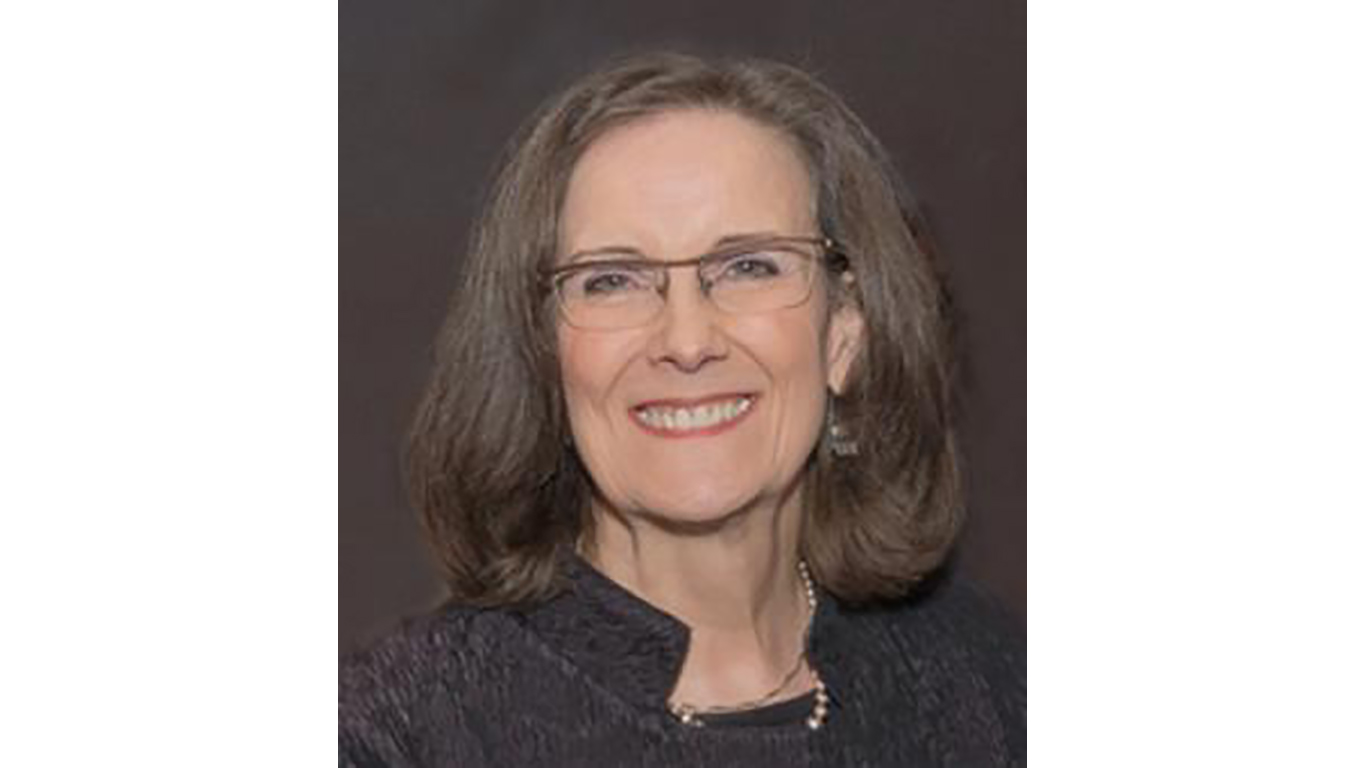
27. Nancy Perkins
> Year of birth: N/A
> Birthplace: N/A
> Occupation: Inventor
> Invention: Invented and improved various household appliances
Nancy Perkins has made a career out of either inventing or improving household appliances. Perkins holds patents for various household items such as a rotary grater for cheese, an upright vacuum cleaner, a buffet server, and a slow cooker, to name just a few. Perkins has been an industrial design consultant for Sears Roebuck & Co., and a program manager for industrial design for Jarden Consumer Solutions. She also is the co-founder of the Women in Design Section of the Industrial Designers Society of America.
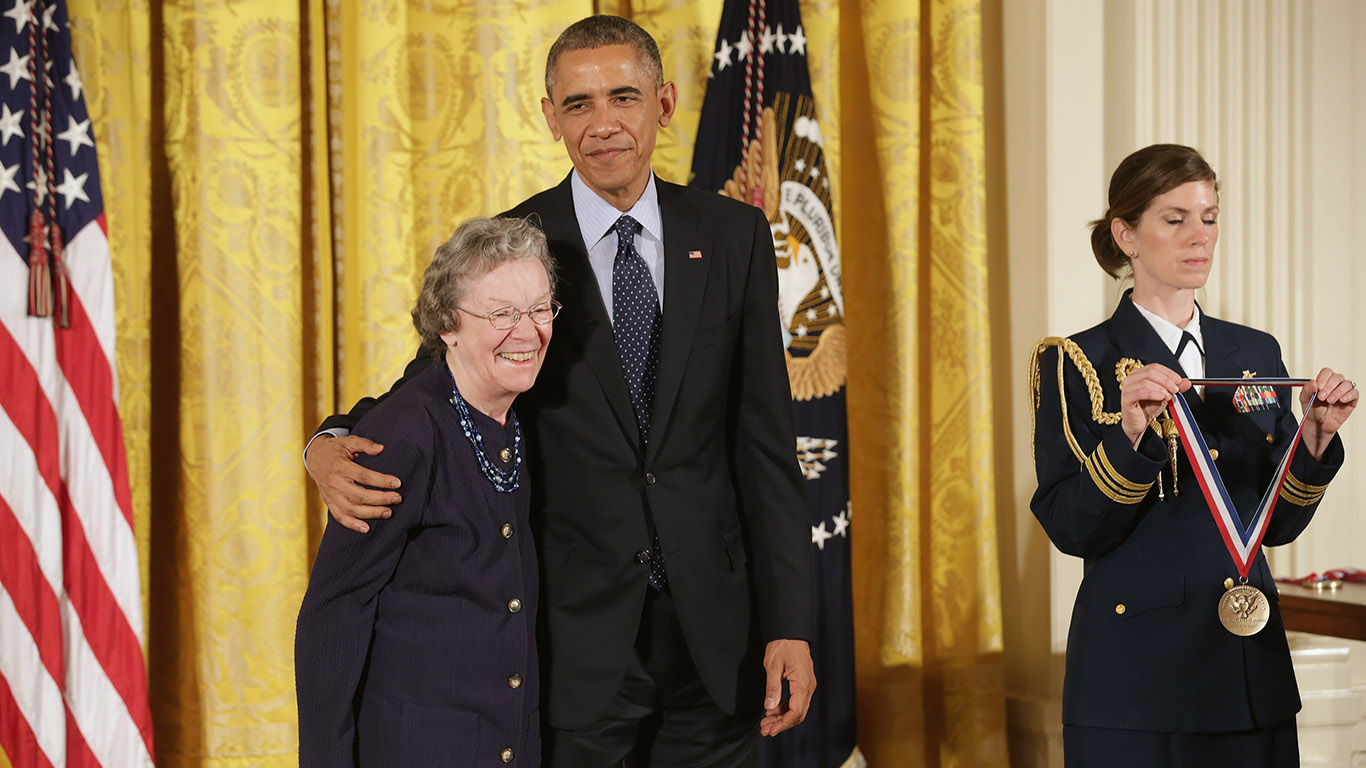
28. Edith Marie Flanigen
> Year of birth: 1929
> Birthplace: Buffalo, New York
> Occupation: Chemist
> Invention: Invented or developed over 200 different synthetic substances
Edith Flanigen has been described as one of the most inventive chemists of all time. Over her 42-year career with Union Carbide, she invented more than 200 synthetic substances and was awarded more than 100 patents. Flanigen is known for her work on molecular sieves, which can filter or separate complex substances, and in particular zeolite Y, which is used to refine petroleum. She also co-invented a synthetic emerald that was used in masers, predecessors of lasers, and jewelry. In 2014, Flanigen was awarded the National Medal of Technology and Innovation by President Obama.
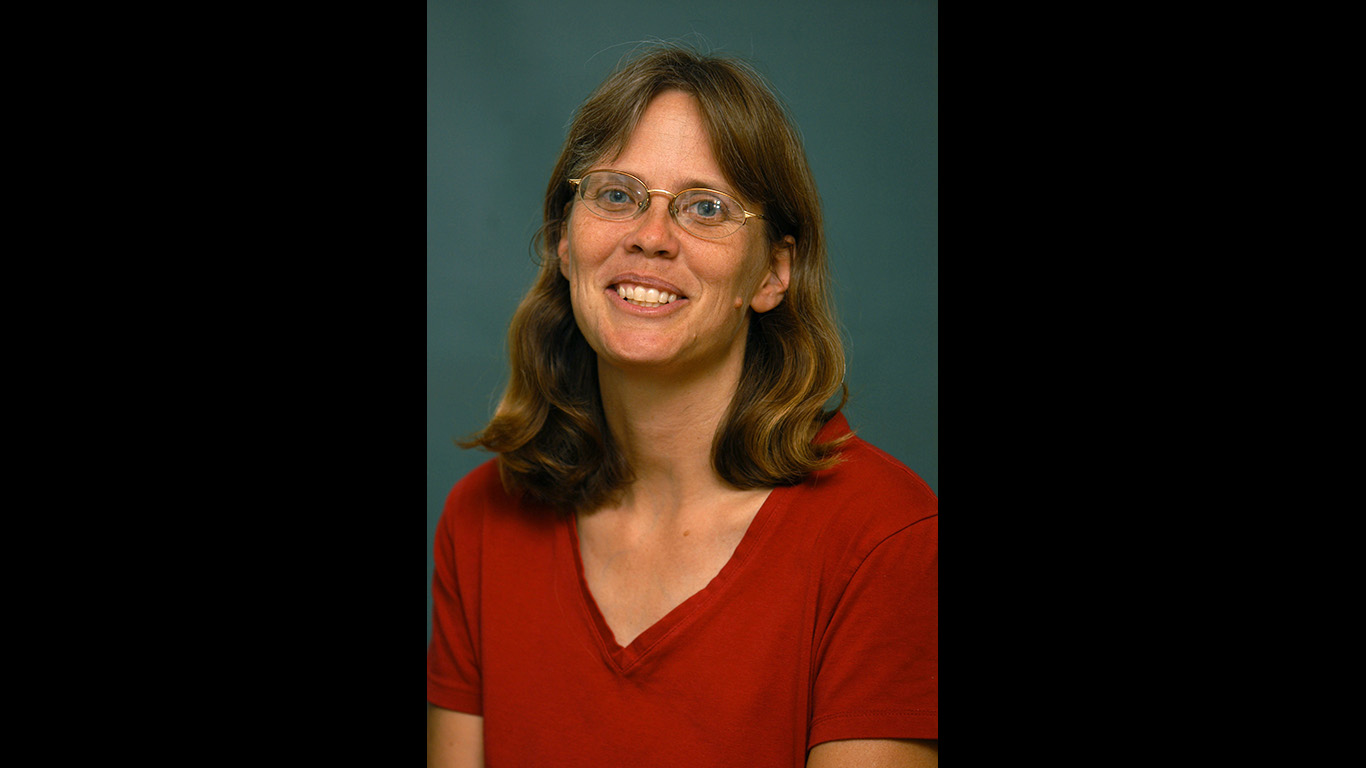
29. Amy Smith
> Year of birth: 1962
> Birthplace: Lexington, Massachusetts
> Occupation: Engineer
> Invention: Developed a way to turn sugar-cane fibers into clean-burning charcoal
Amy Smith is the director of MIT’s D-Lab, which focuses on producing appropriate technologies for the developing world. Described as “a practitioner of humanitarian engineering,” Smith has come up with a series of inventions to help rural families. These include a way to turn sugar-cane fibers, found in countries such as Haiti, into clean-burning charcoal by carbonizing it. Other inventions include a hammer mill for grinding grain into flour and a portable kit to test water for contamination. Smith received a MacArthur Fellowship — unofficially known as a “Genius Grant” — in 2004 and was the first woman to win the Lemelson-MIT Prize for “translating ideas into inventions that improve the world.”
[in-text-ad-2]
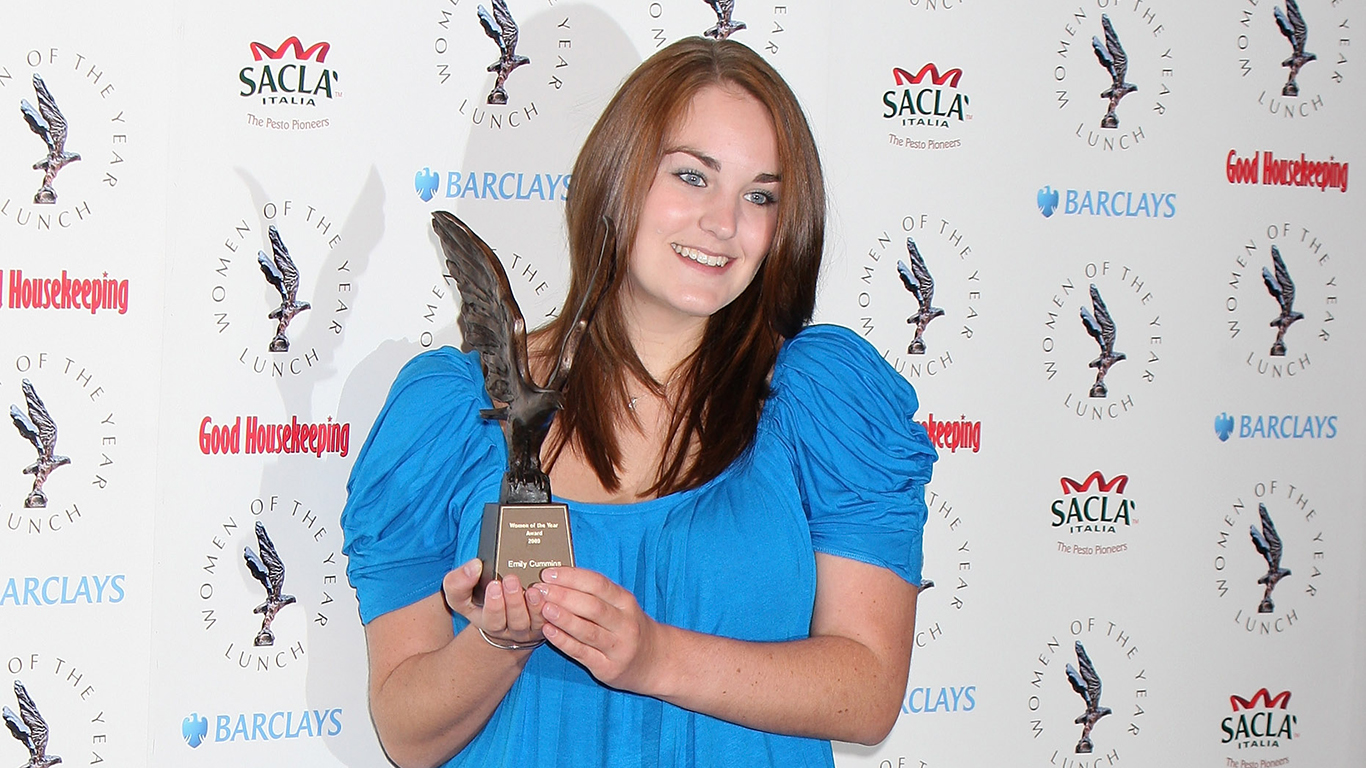
30. Emily Jane Cummins
> Year of birth: 1987
> Birthplace: Keighley, United Kingdom
> Occupation: Inventor
> Invention: Invented pullable water carrier for manual workers
Emily Cummins is another woman dedicated to improving lives in the developing world. She invented a water carrier made largely of tree branches that can take up to five containers held in place by surplus inner tubes. The water carrier can be adapted to carry firewood or other loads and can be recycled at the end of its life. Cummins also designed a sustainable refrigerator consisting of two metal cylinders with sand or another material in between. This material is then soaked in water and evaporation cools the inner cylinder and its contents. The refrigerator is not complicated to make, doesn’t need electricity, and can use dirty water.

31. Nobelungu Mashinini
> Year of birth: 1948
> Birthplace: Embalenhle Township in Secunda, South Africa
> Occupation: Inventor
> Invention: Invented cleaner method to burn coal domestically
Nobelungu Mashinini, known affectionately as “Granny Mashinini,” introduced a way to build coal fires that emit far less smoke than the traditional method. The smoke from coal fires, which are used for heating in many South African communities, has been linked to increased respiratory disease, especially among children. Instead of layering coal over a base of paper, Mashinini began her fires with coal, and then added a layer of paper and a few pieces of wood. Mashinini’s system of “making fire like the granny” has been taught to households across the country and has had a huge impact on the winter air quality.
[in-text-ad]
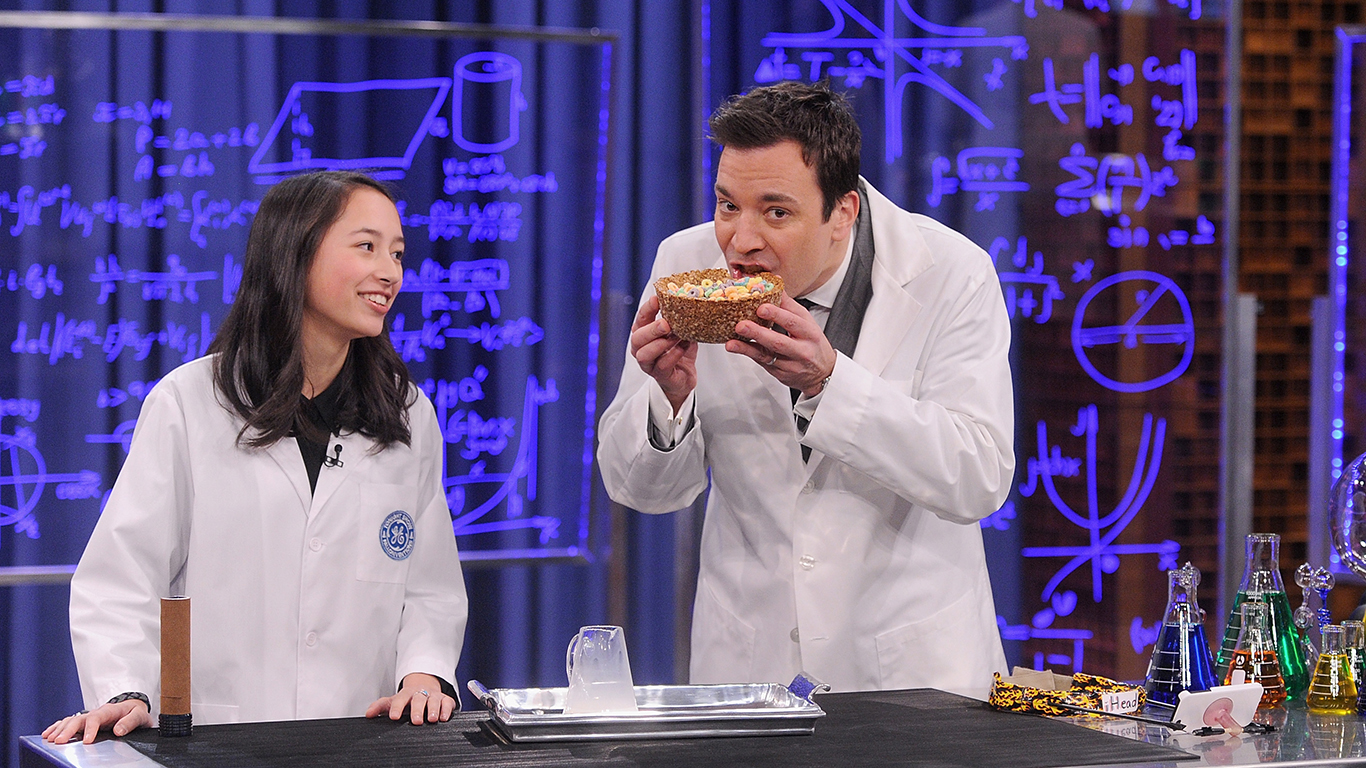
32. Ann Makosinski
> Year of birth: 1997
> Birthplace: Victoria, Canada
> Occupation: Inventor/public speaker
> Invention: Invented Hollow Flashlight
Canadian Ann Makosinski won the 2013 Google Science Fair for inventing the Hollow Flashlight, a light powered by the heat of the human hand. She also invented eDrink, a mug that uses human-powered energy to charge a phone. Makosinski also founded Makotronics Enterprises. Makosinski was named one of Forbes magazine’s 30 Under 30 in 2017 and appeared on “The Tonight Show Starring Jimmy Fallon.”
Cash Back Credit Cards Have Never Been This Good
Credit card companies are at war, handing out free rewards and benefits to win the best customers. A good cash back card can be worth thousands of dollars a year in free money, not to mention other perks like travel, insurance, and access to fancy lounges. See our top picks for the best credit cards today. You won’t want to miss some of these offers.
Flywheel Publishing has partnered with CardRatings for our coverage of credit card products. Flywheel Publishing and CardRatings may receive a commission from card issuers.
Thank you for reading! Have some feedback for us?
Contact the 24/7 Wall St. editorial team.
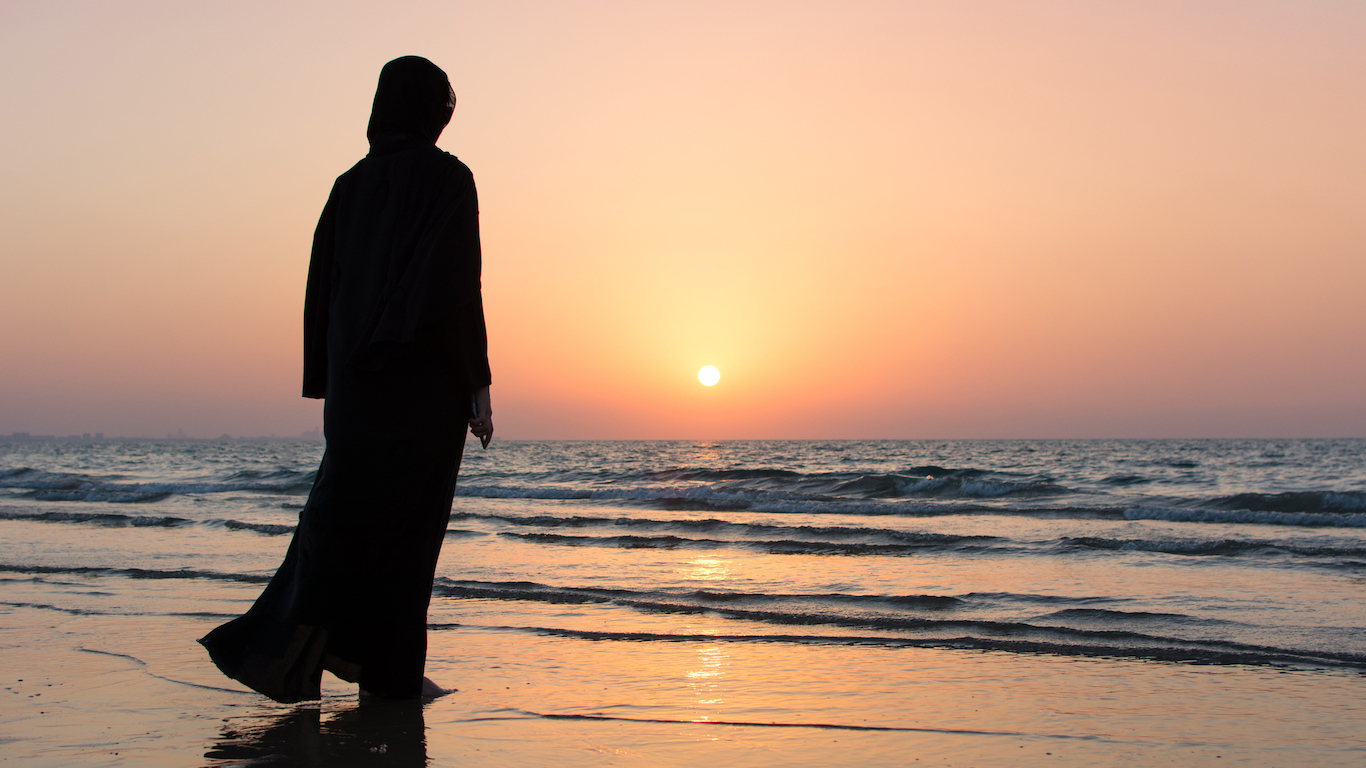 24/7 Wall St.
24/7 Wall St. 24/7 Wall St.
24/7 Wall St.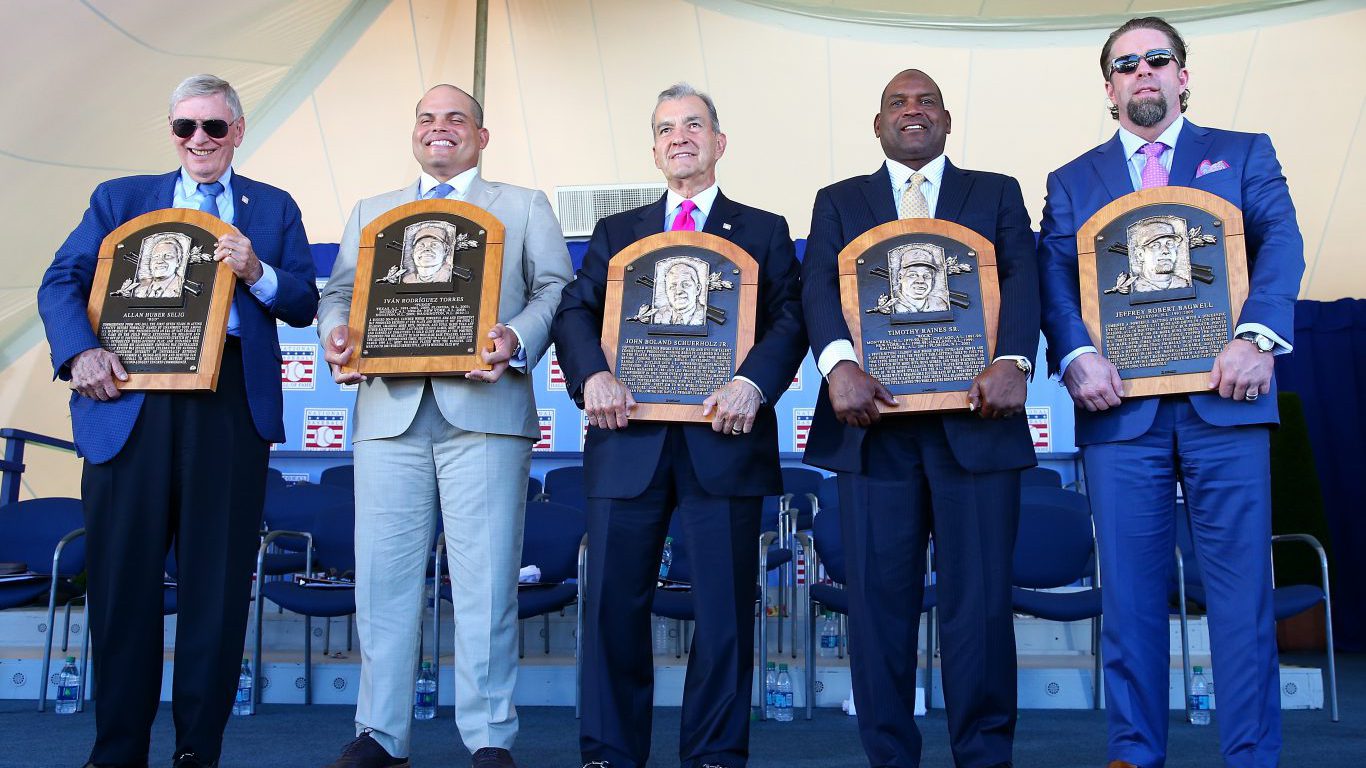 24/7 Wall St.
24/7 Wall St.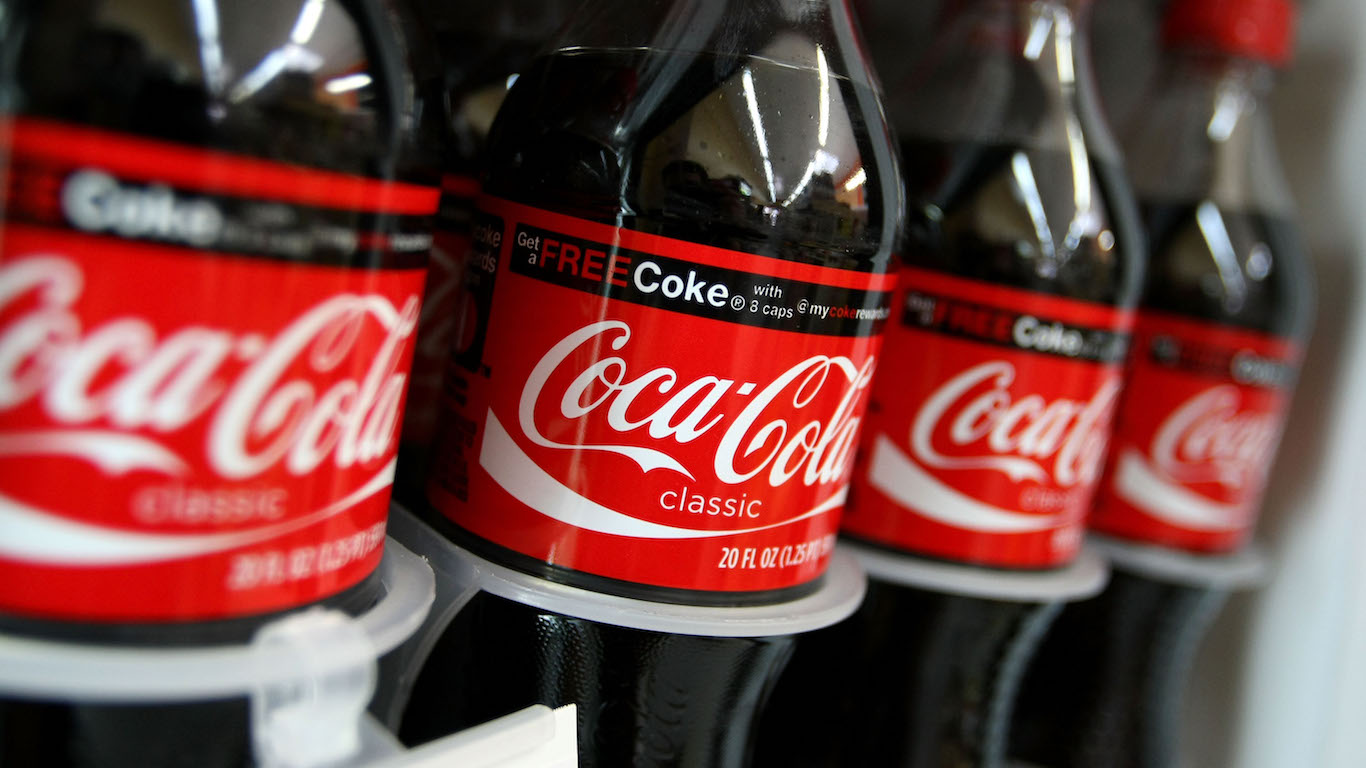 24/7 Wall St.
24/7 Wall St.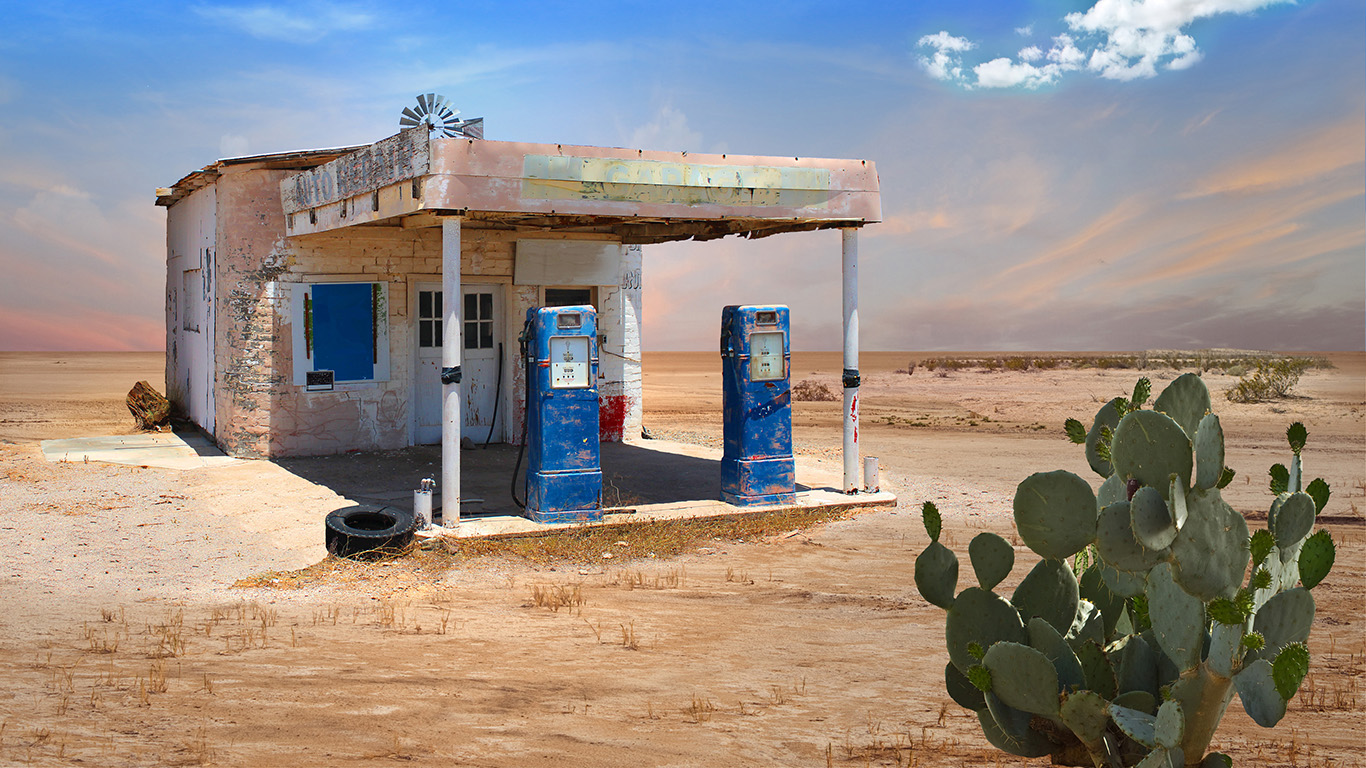 24/7 Wall St.
24/7 Wall St.


